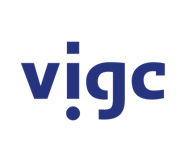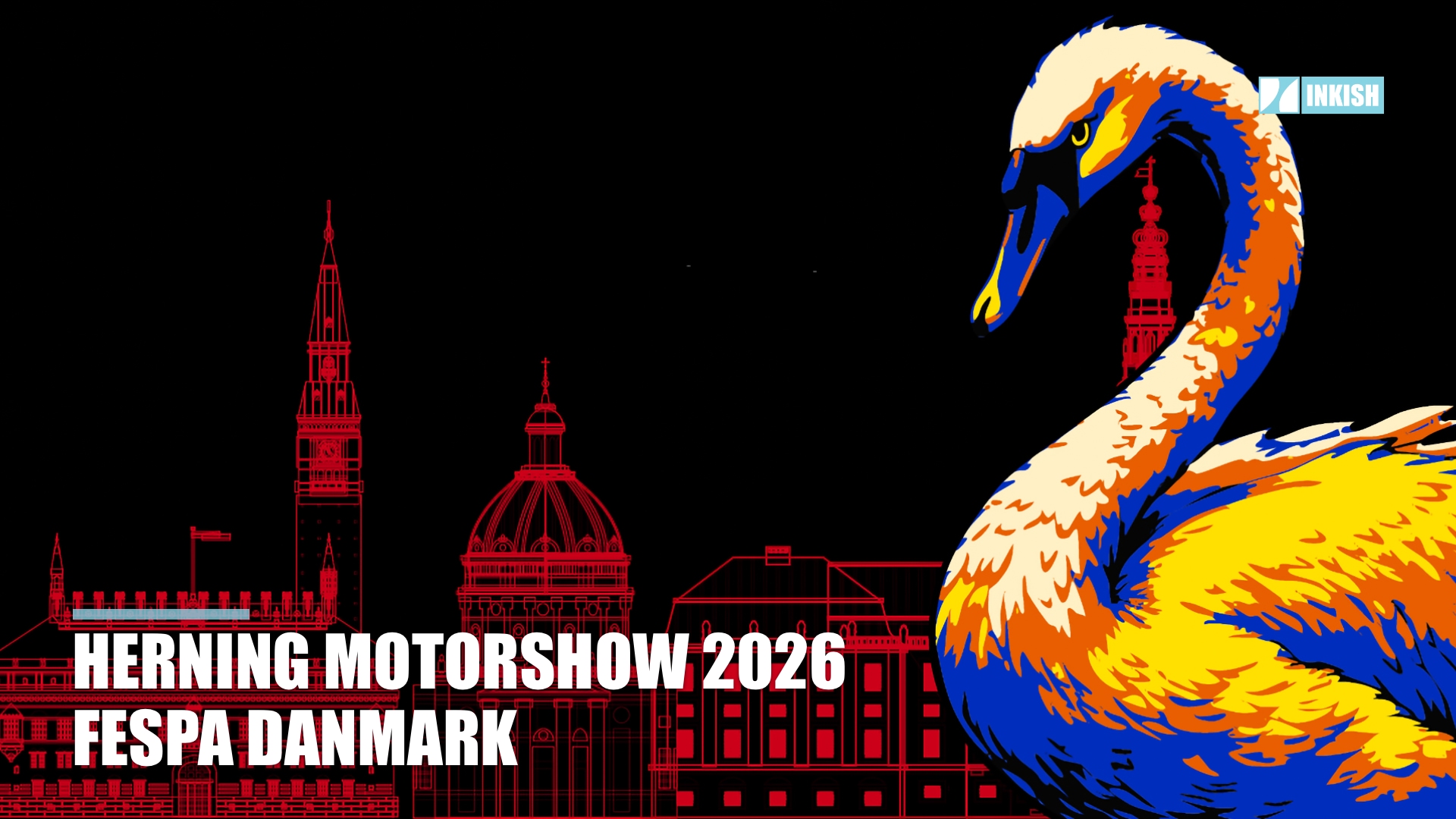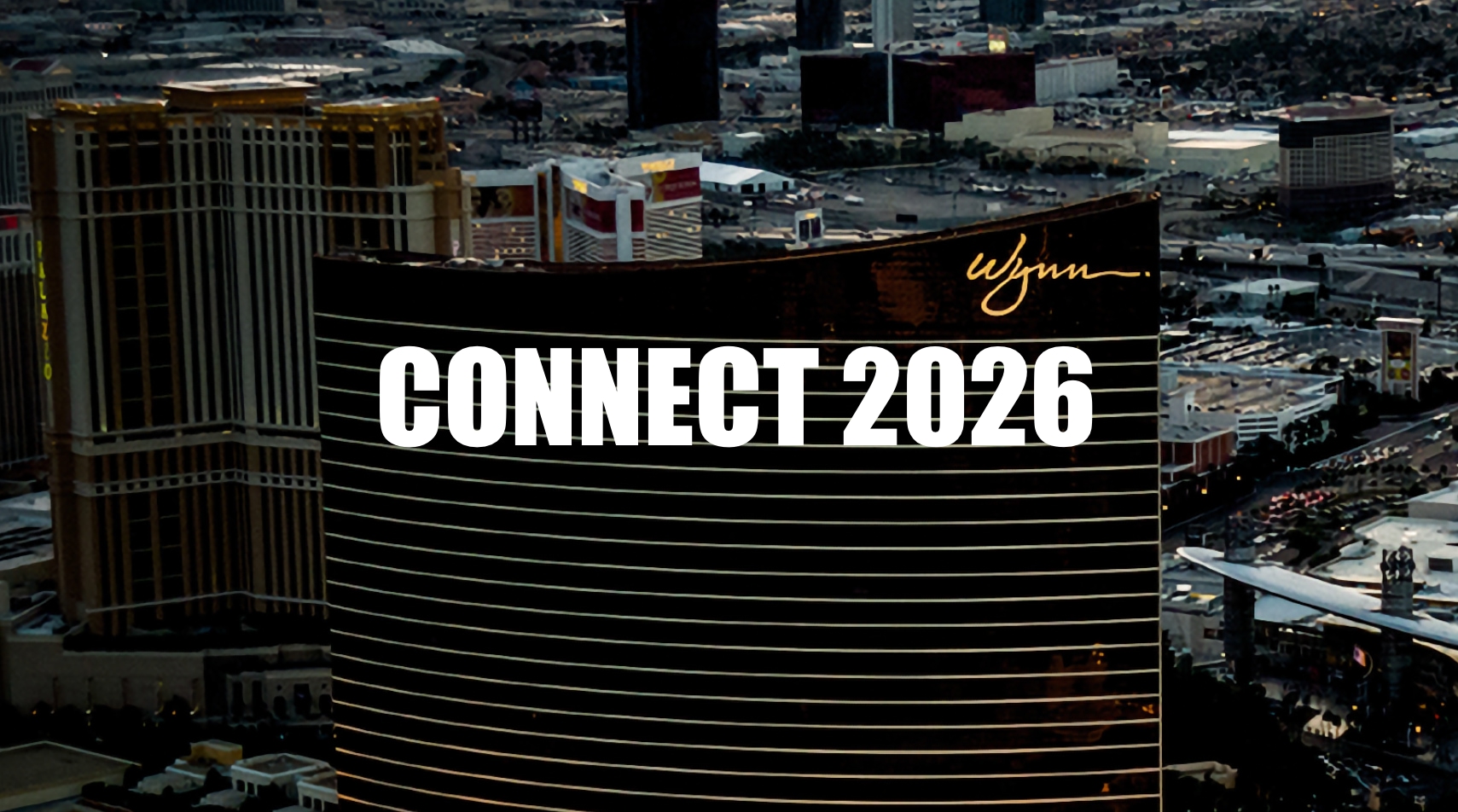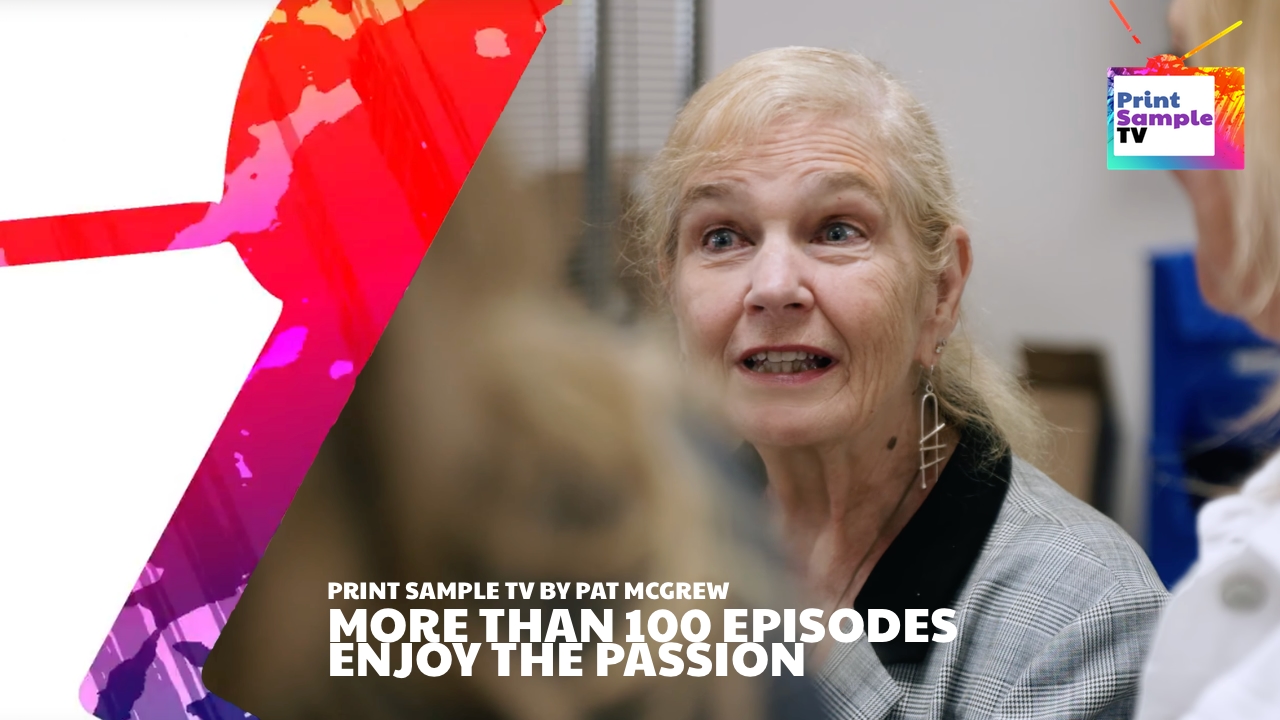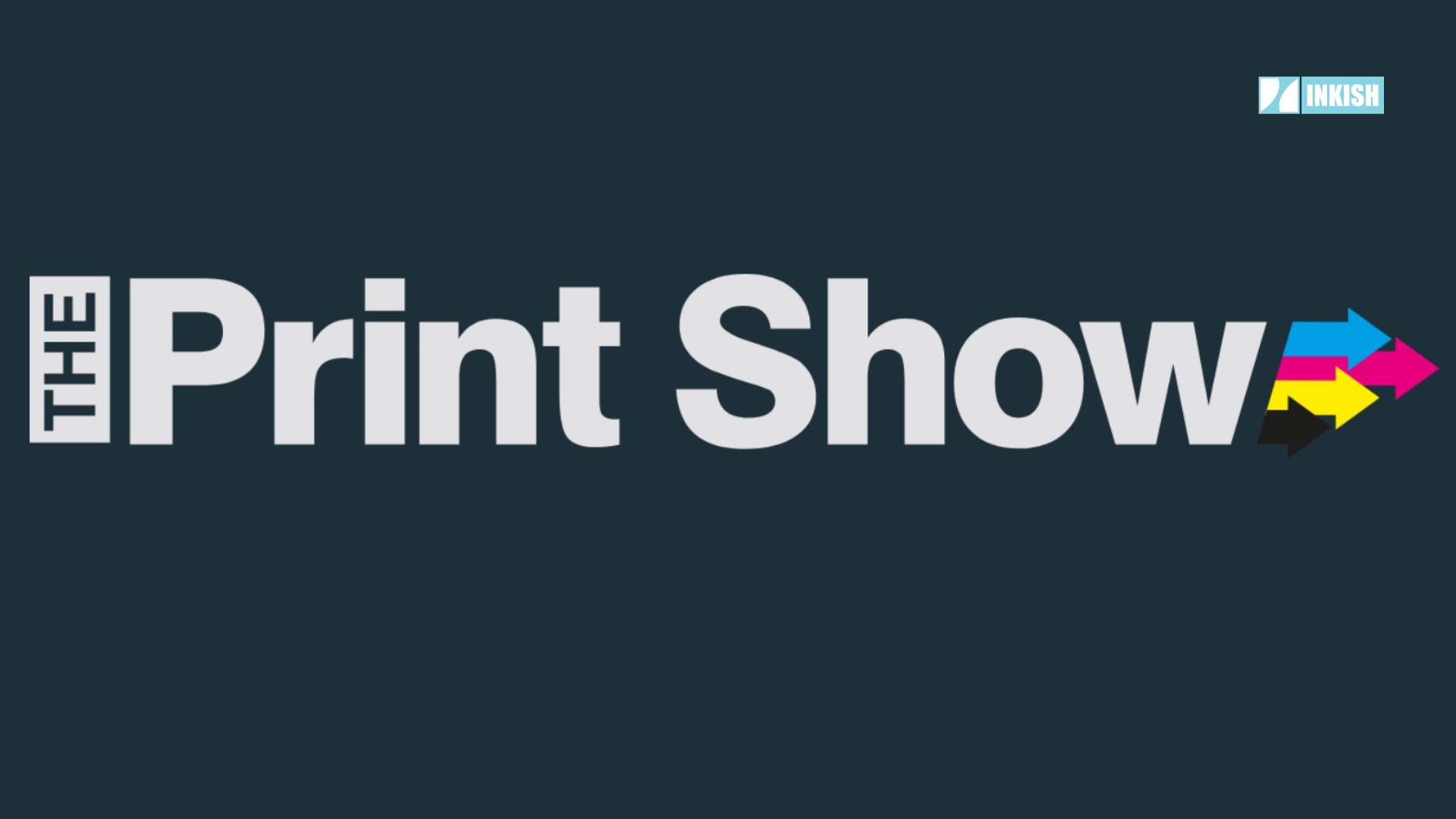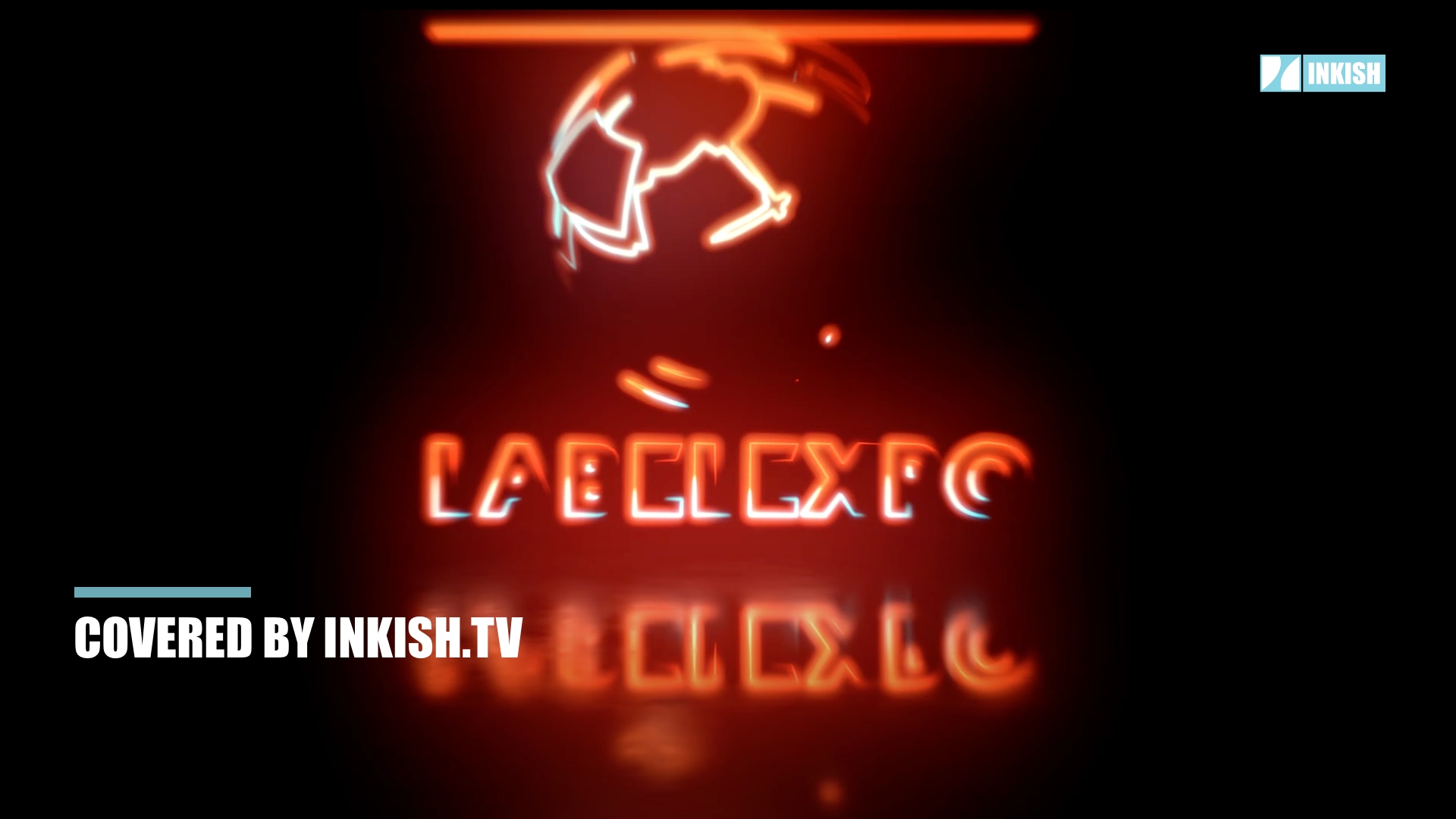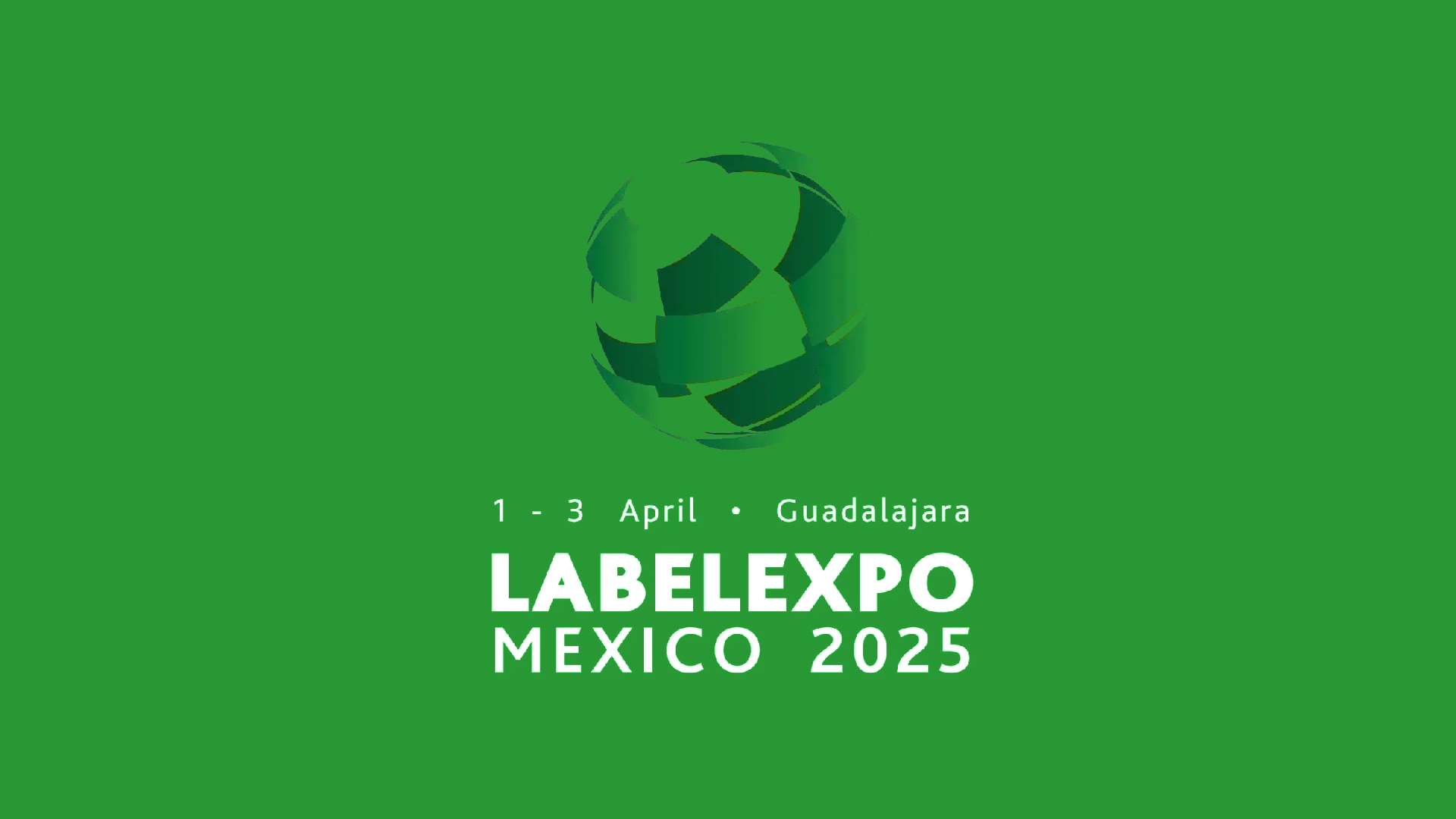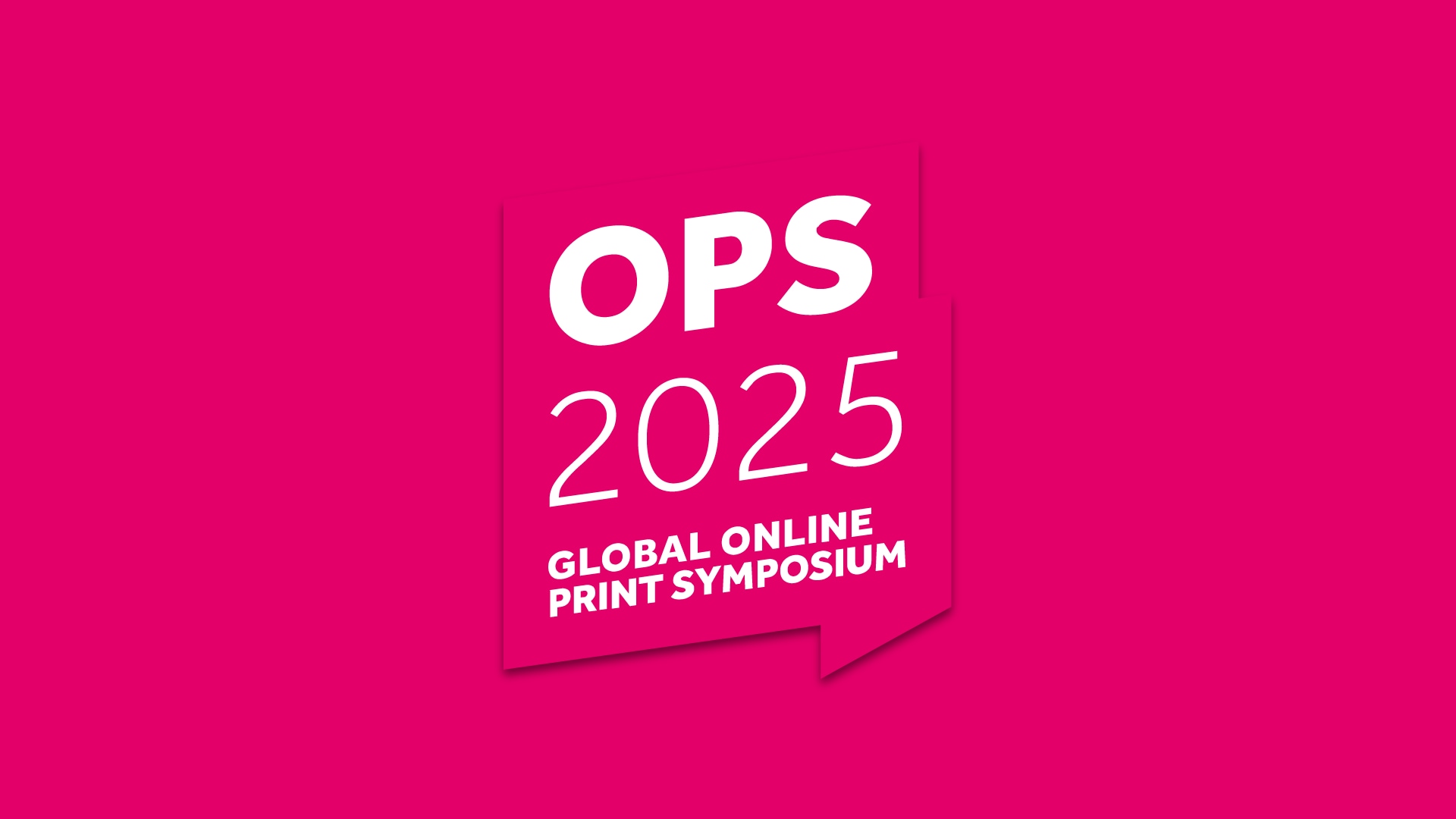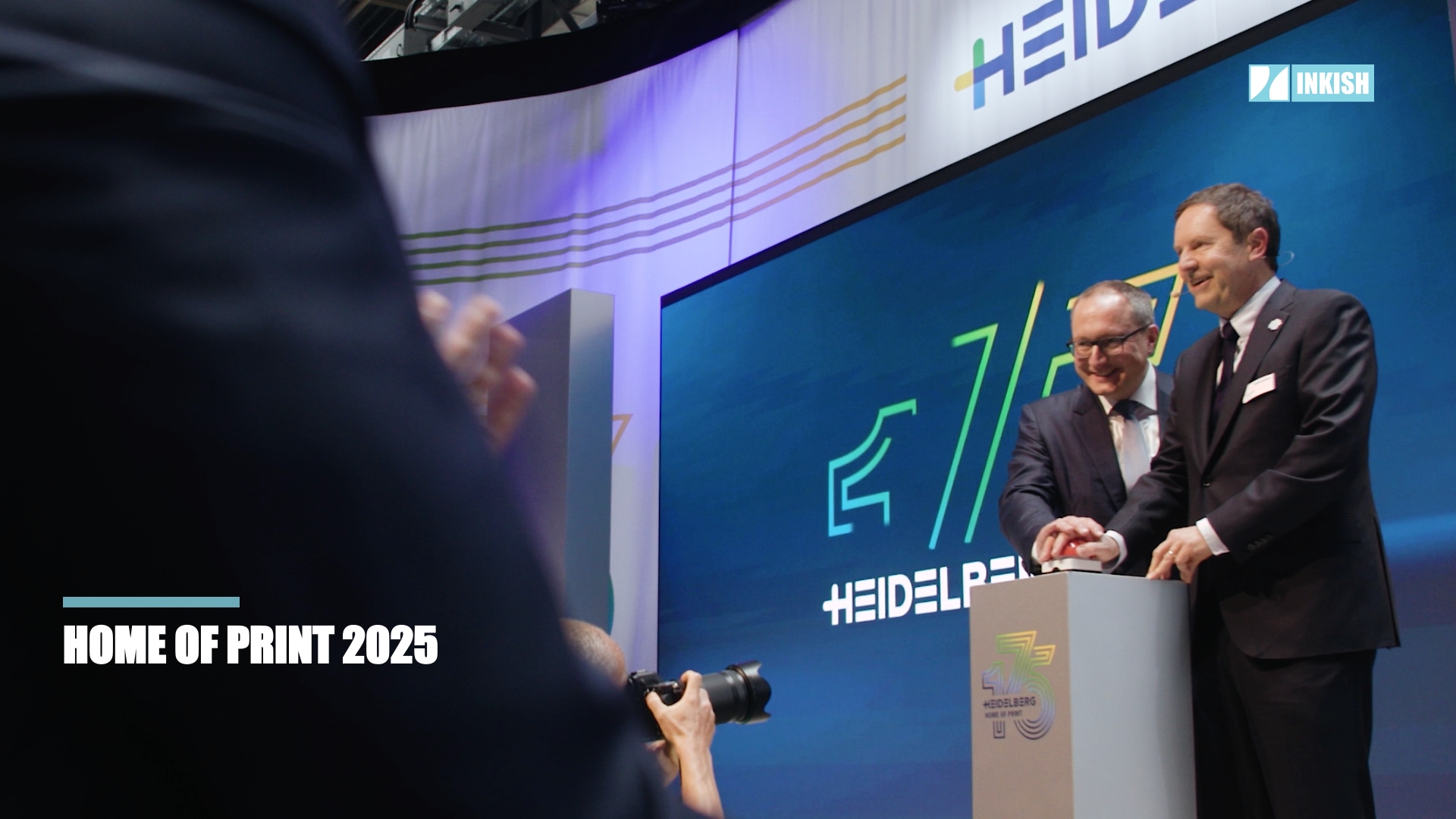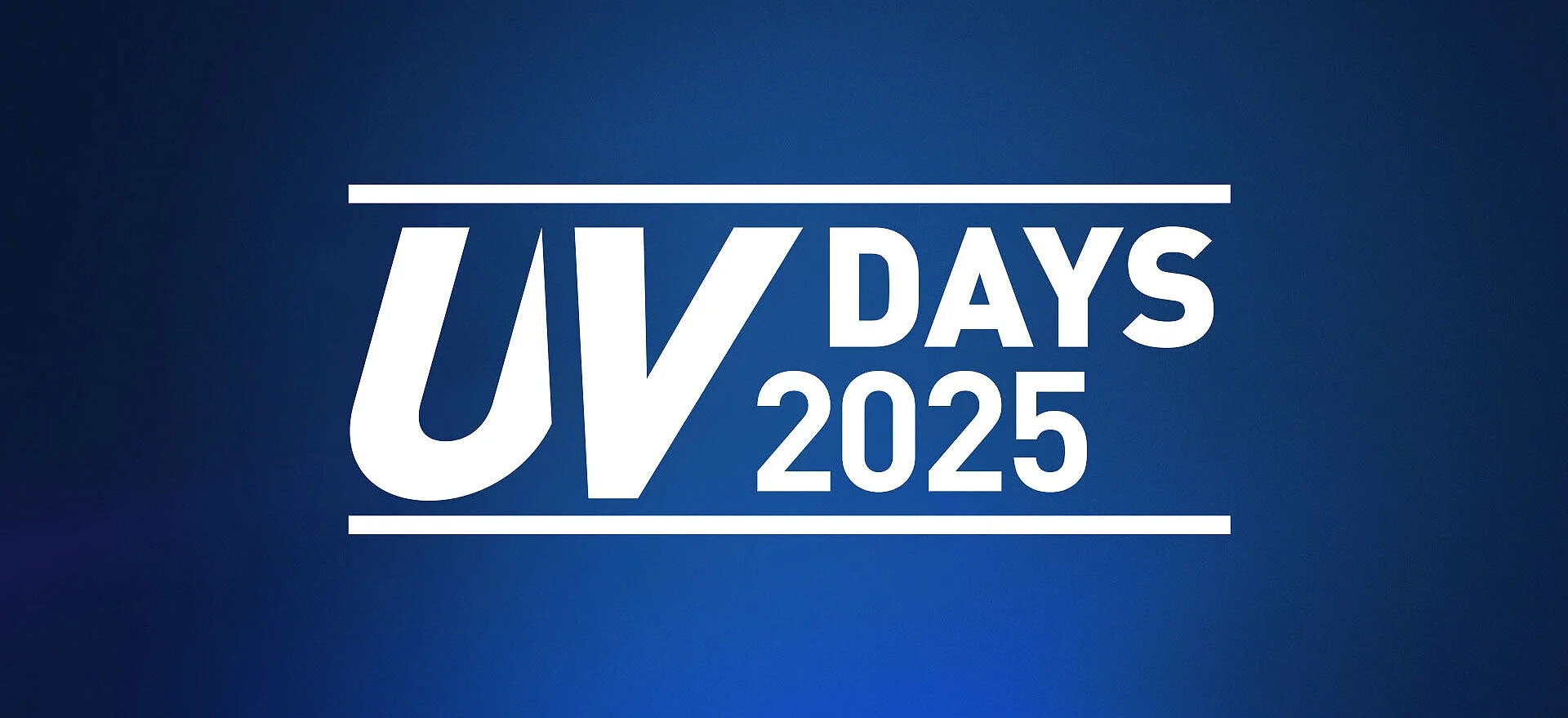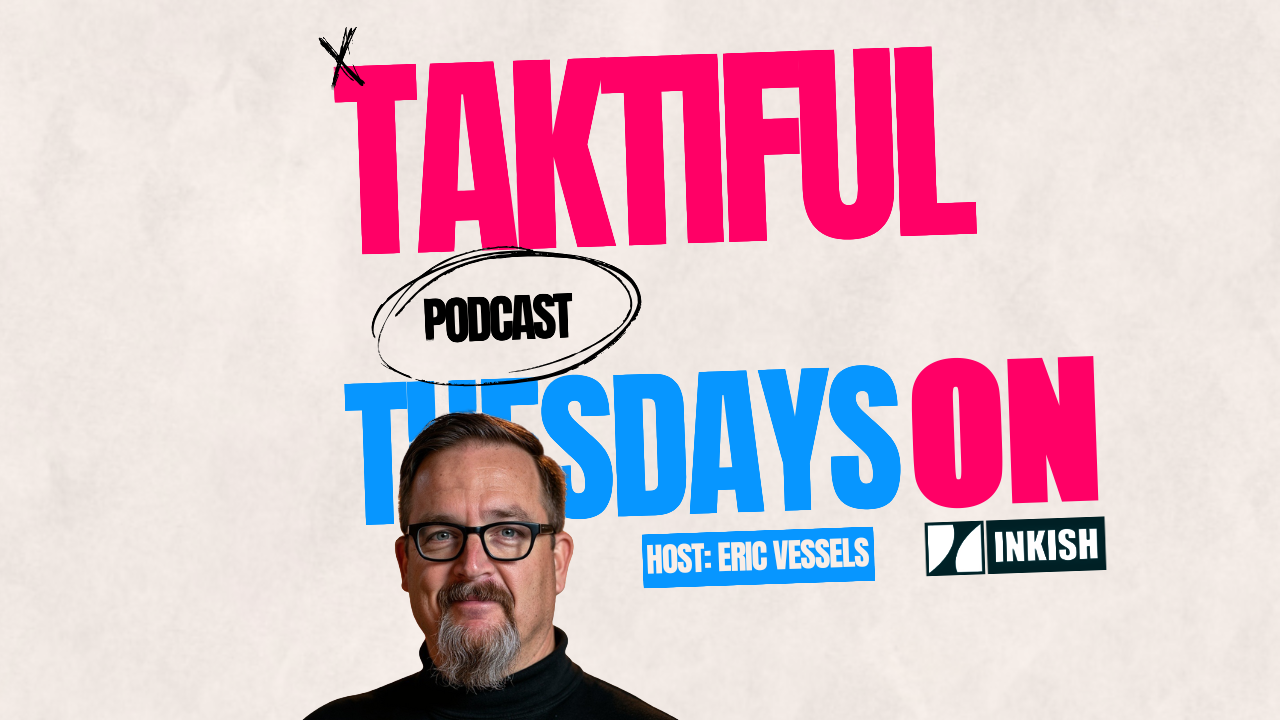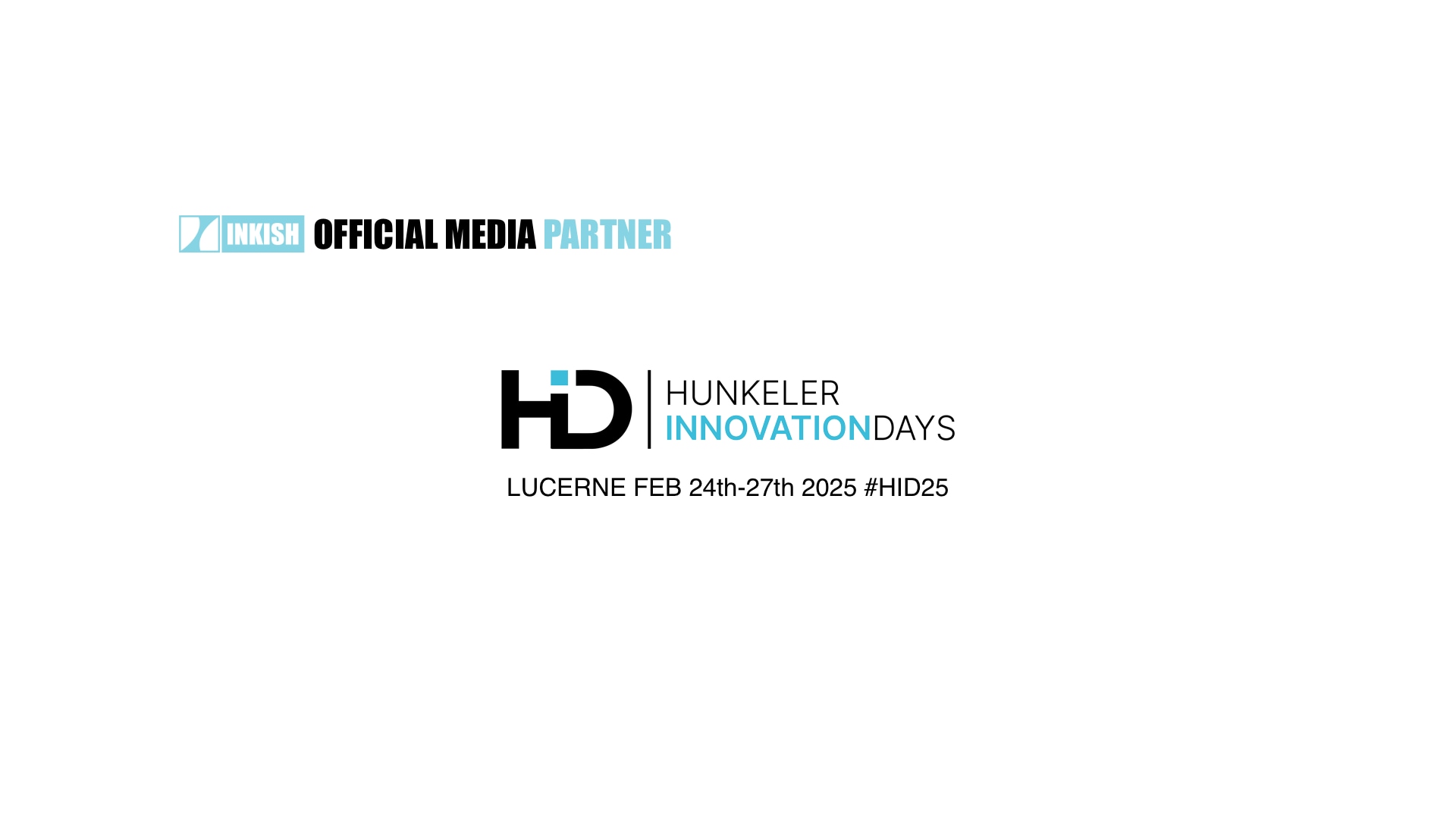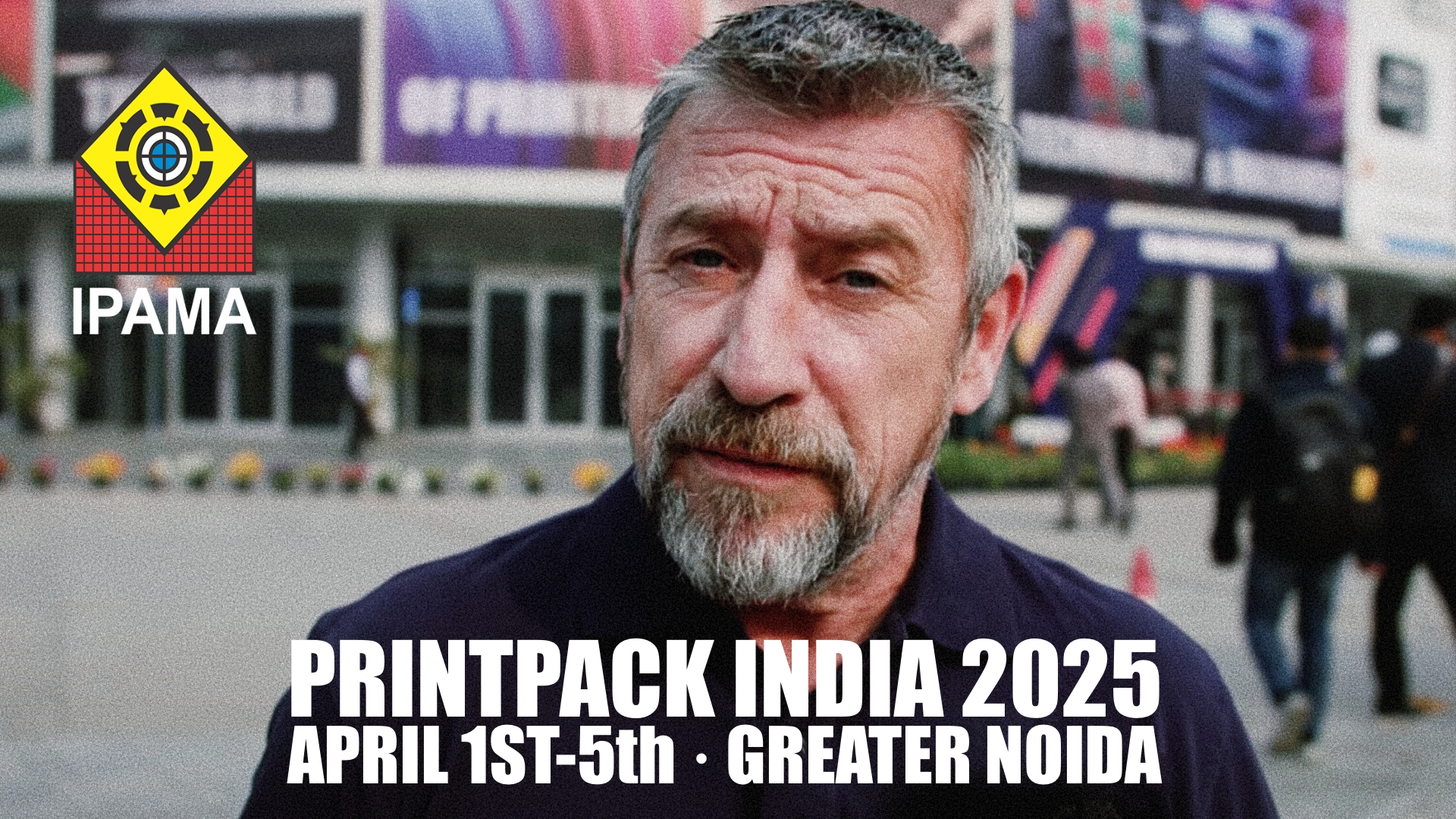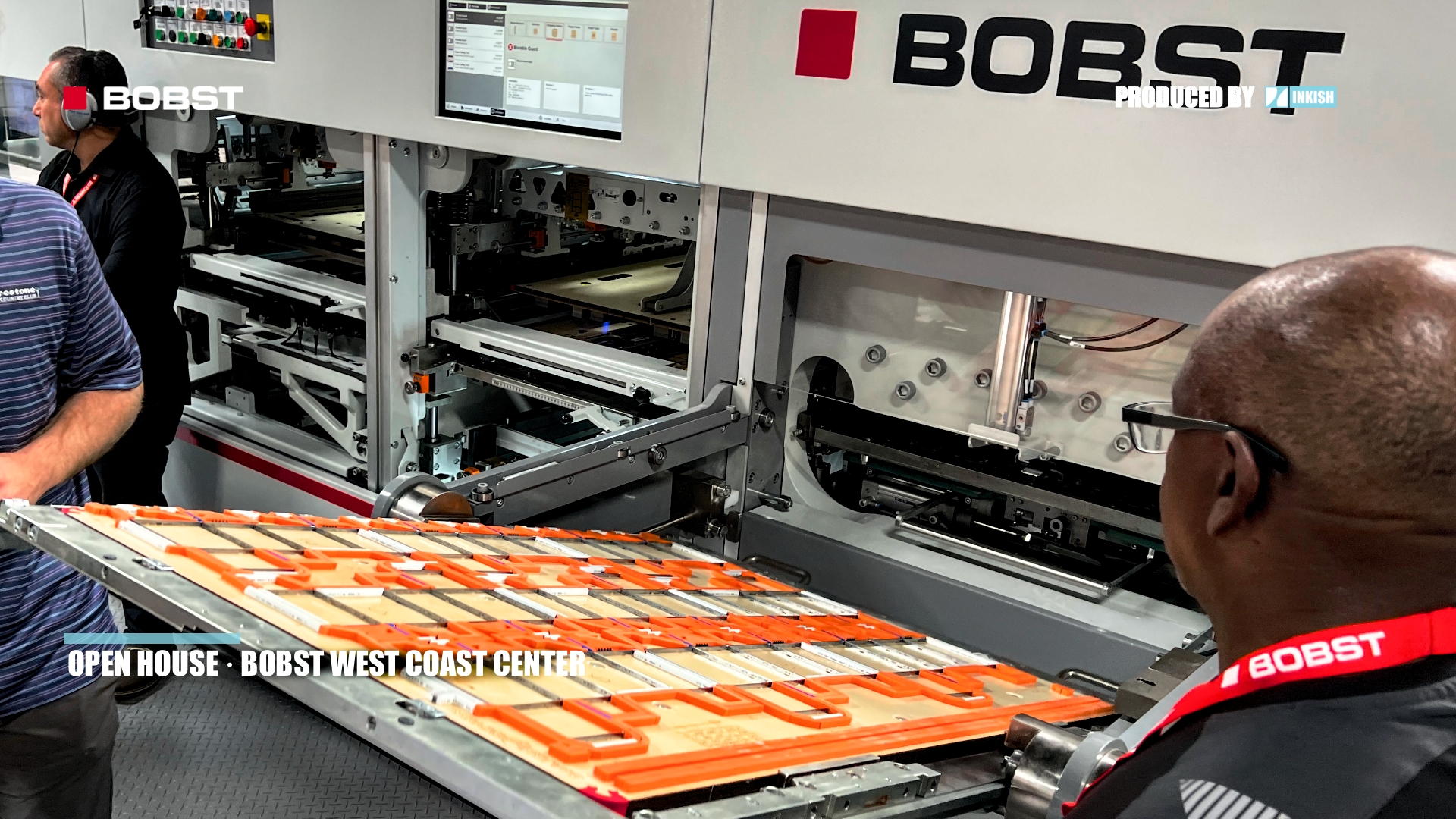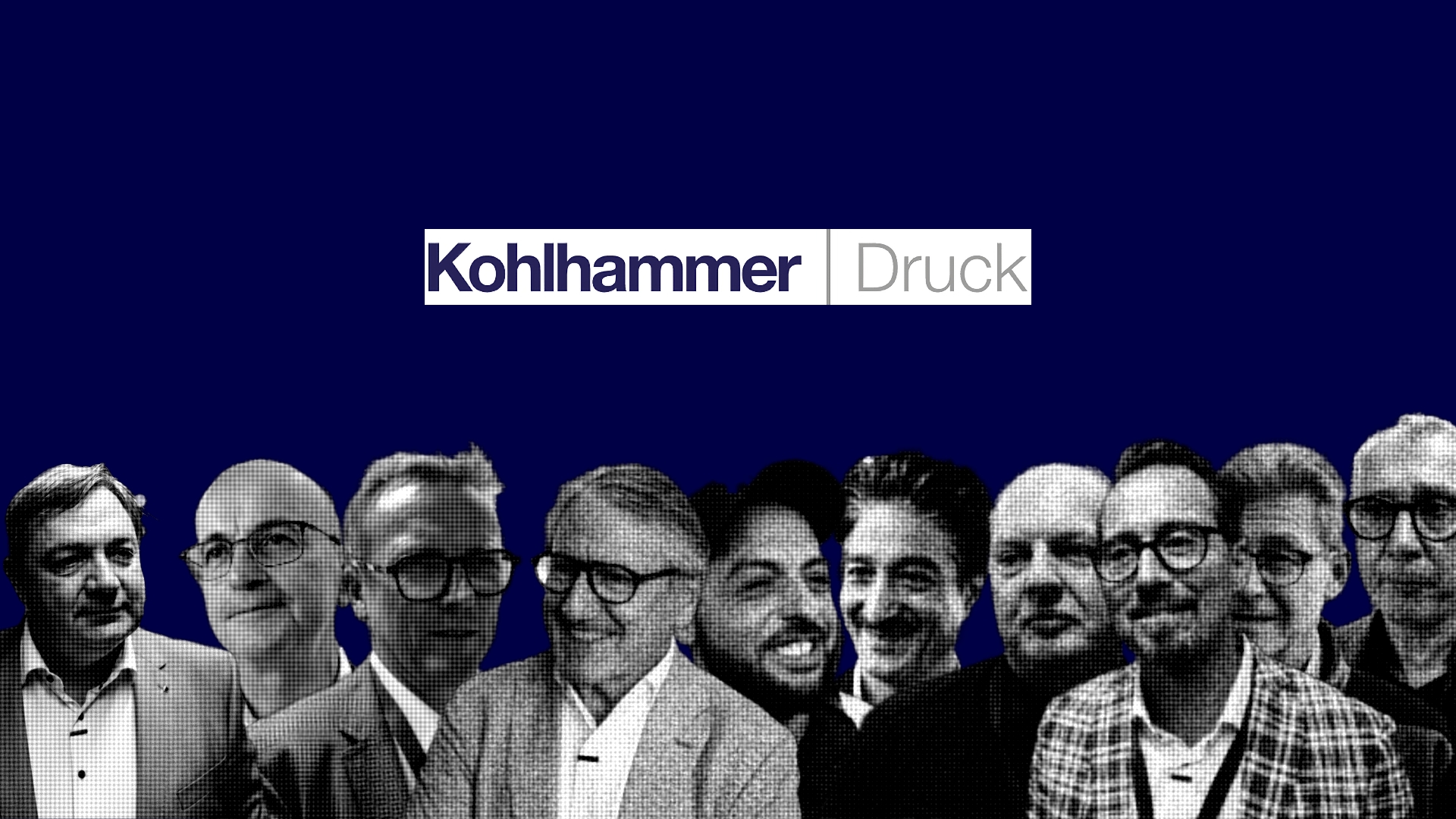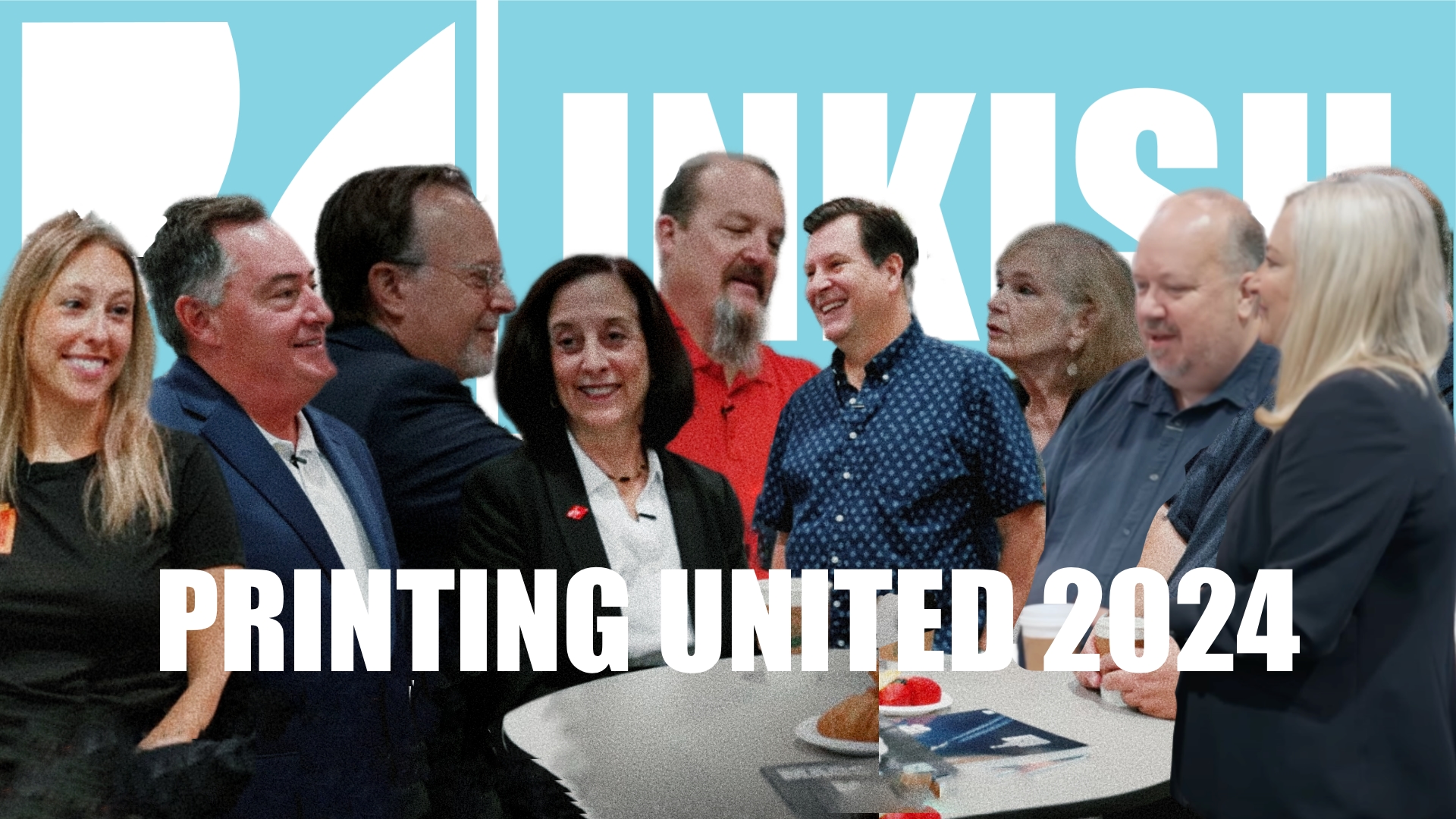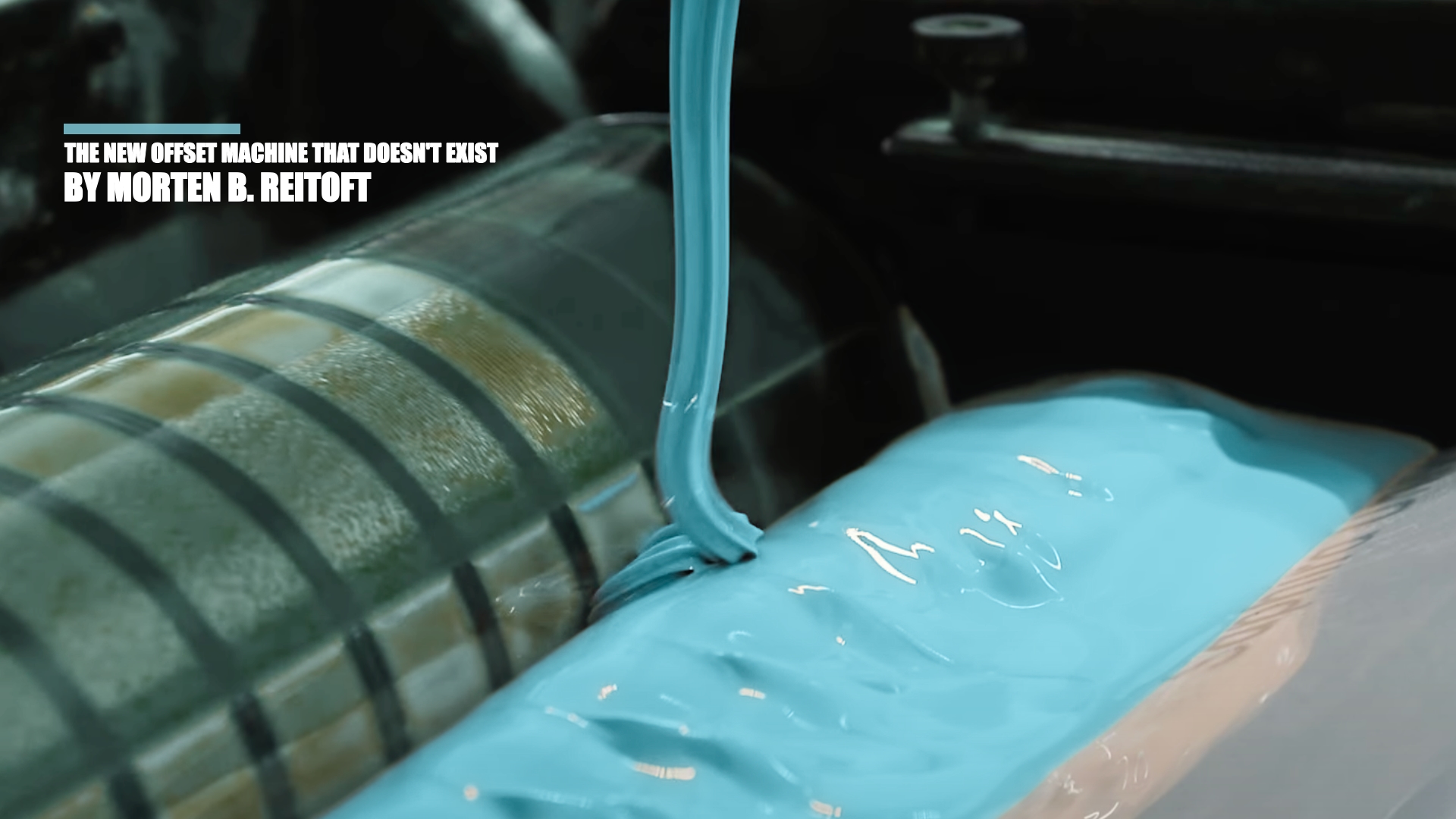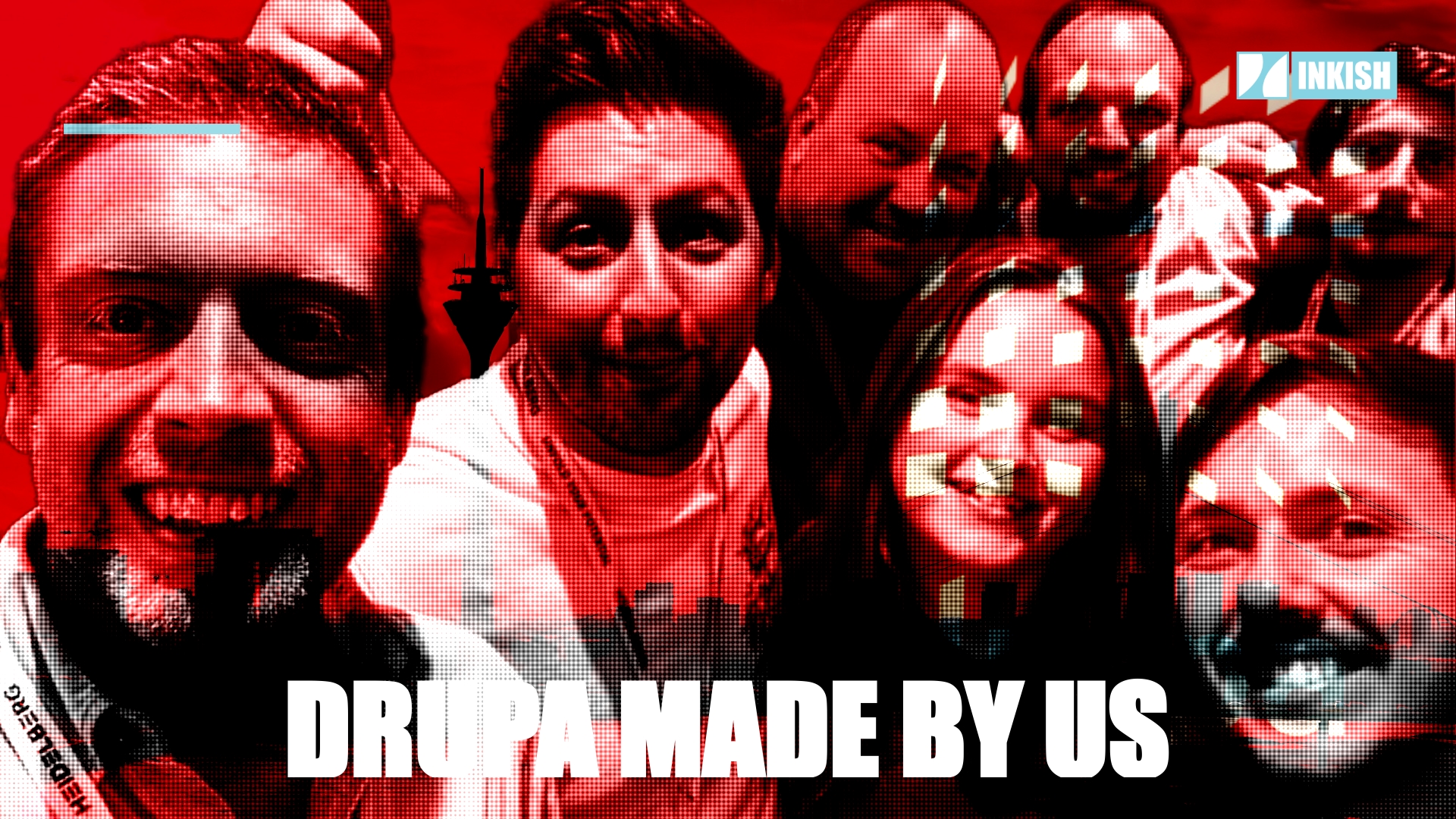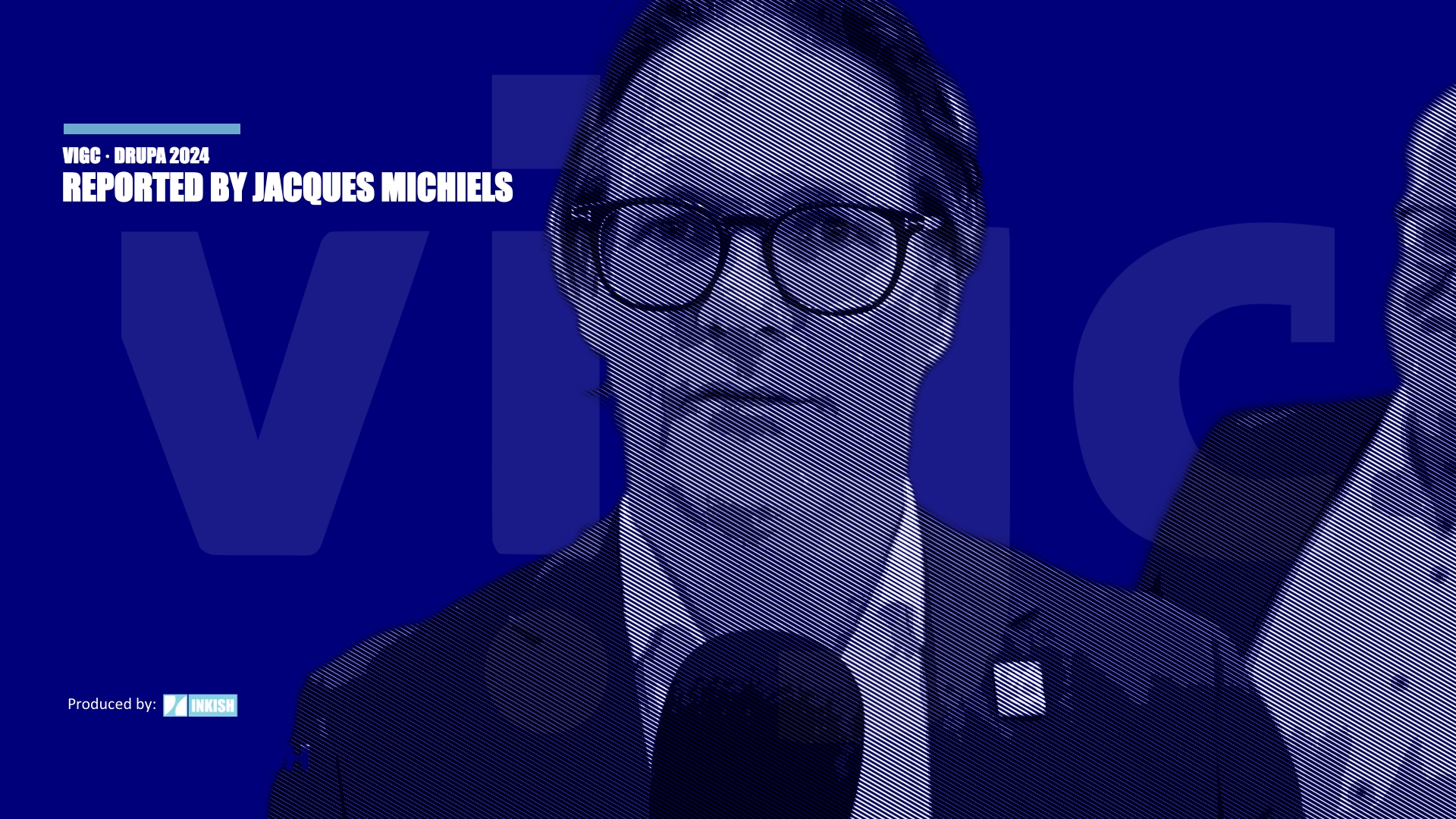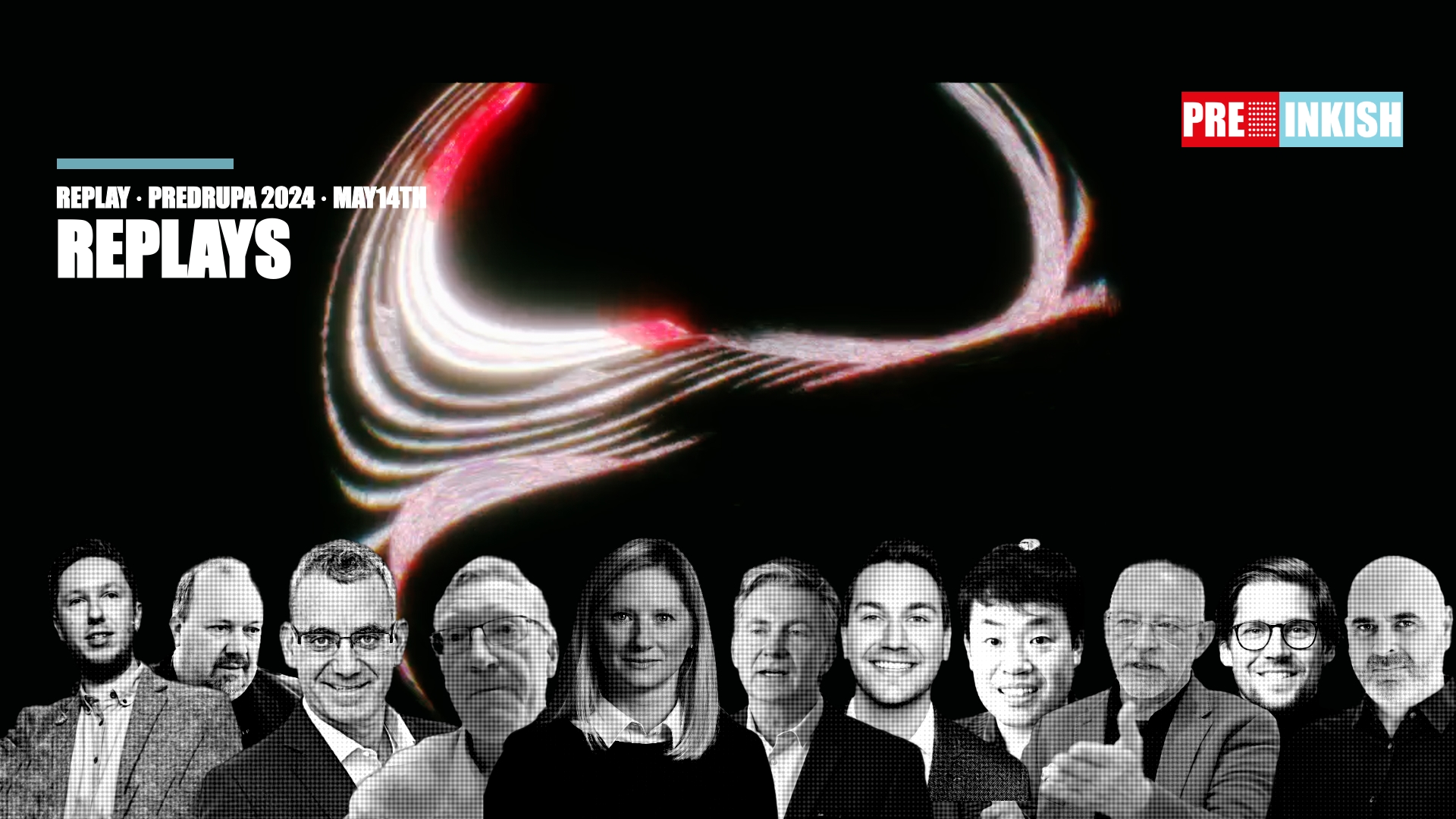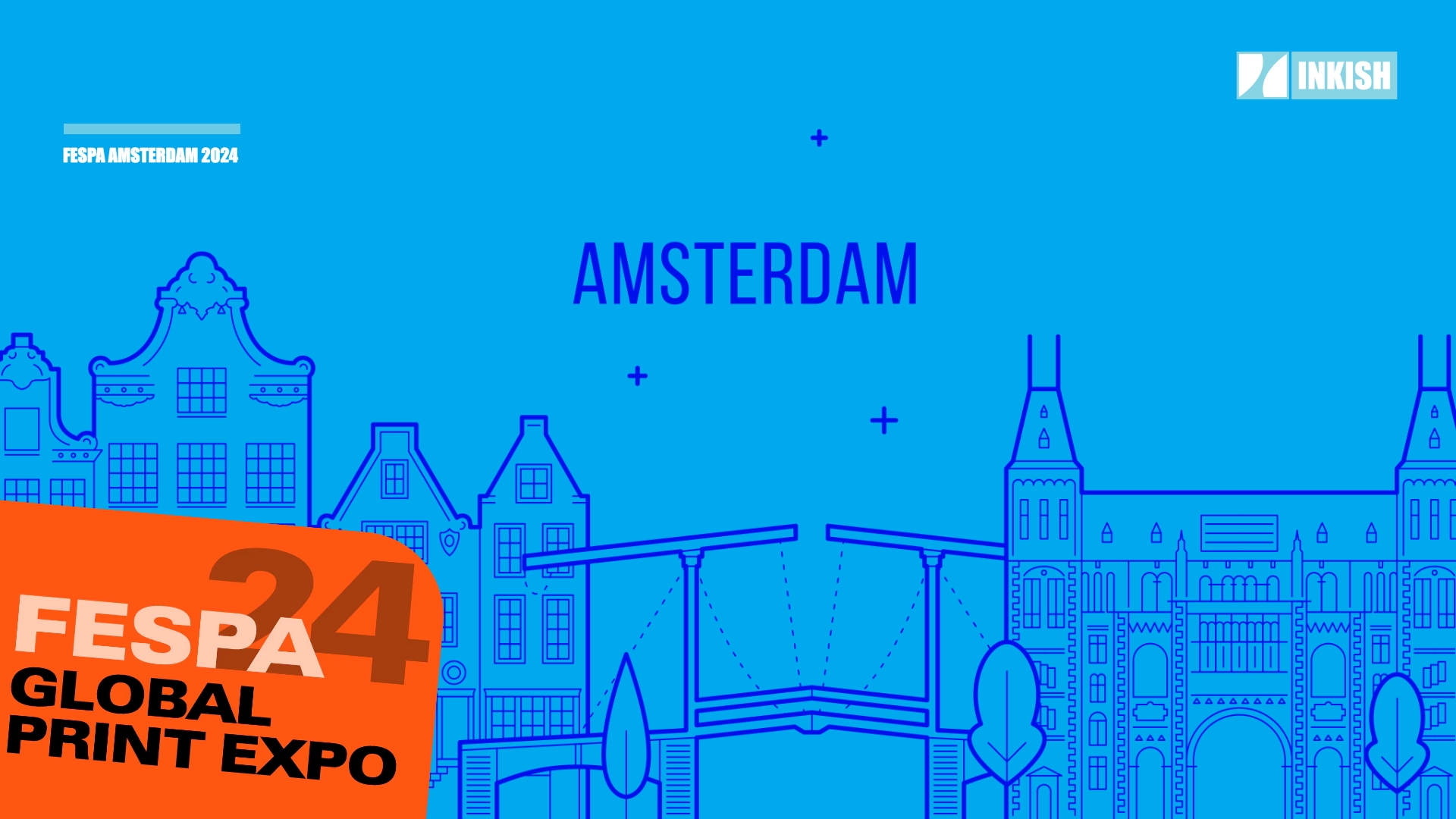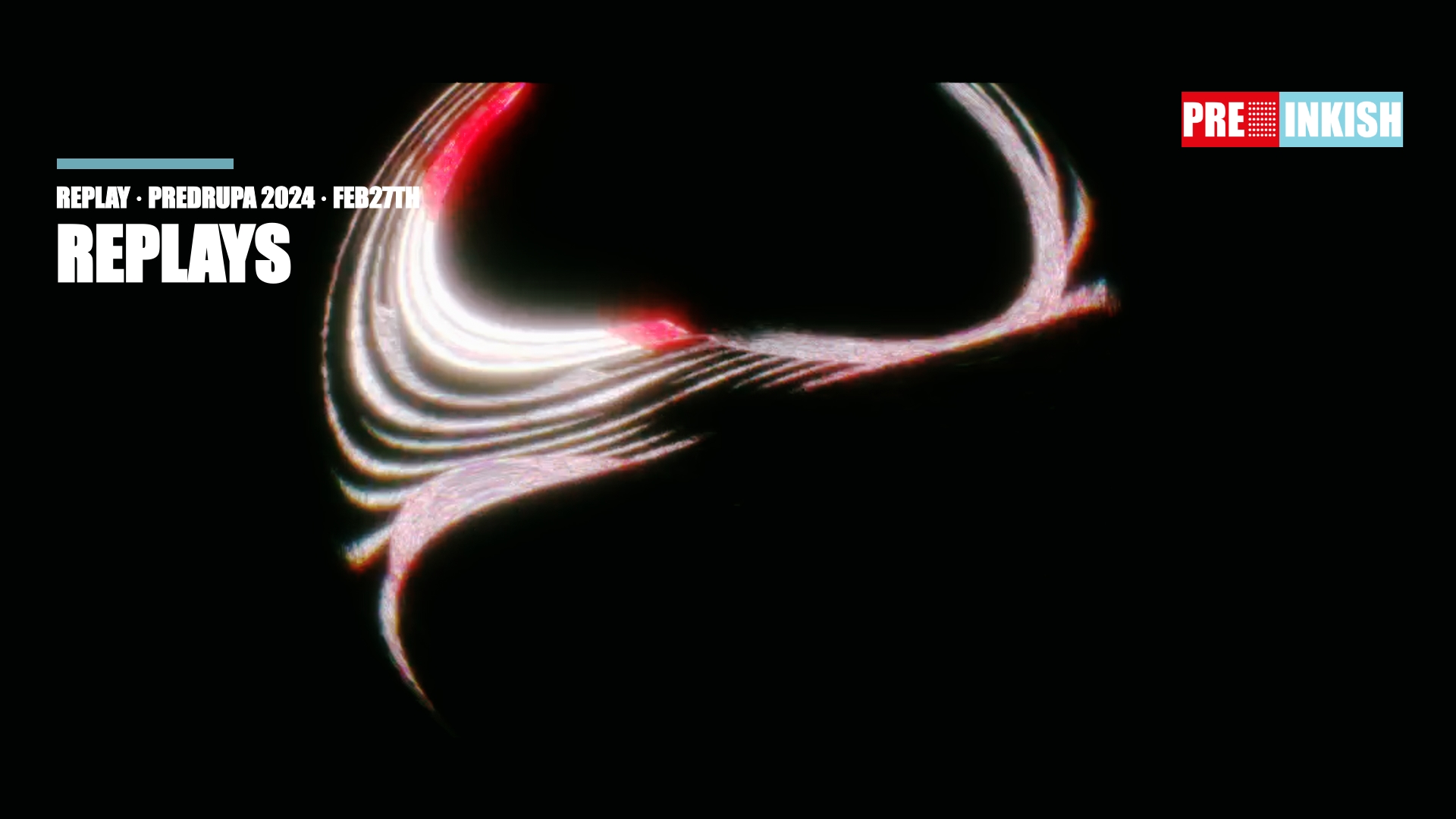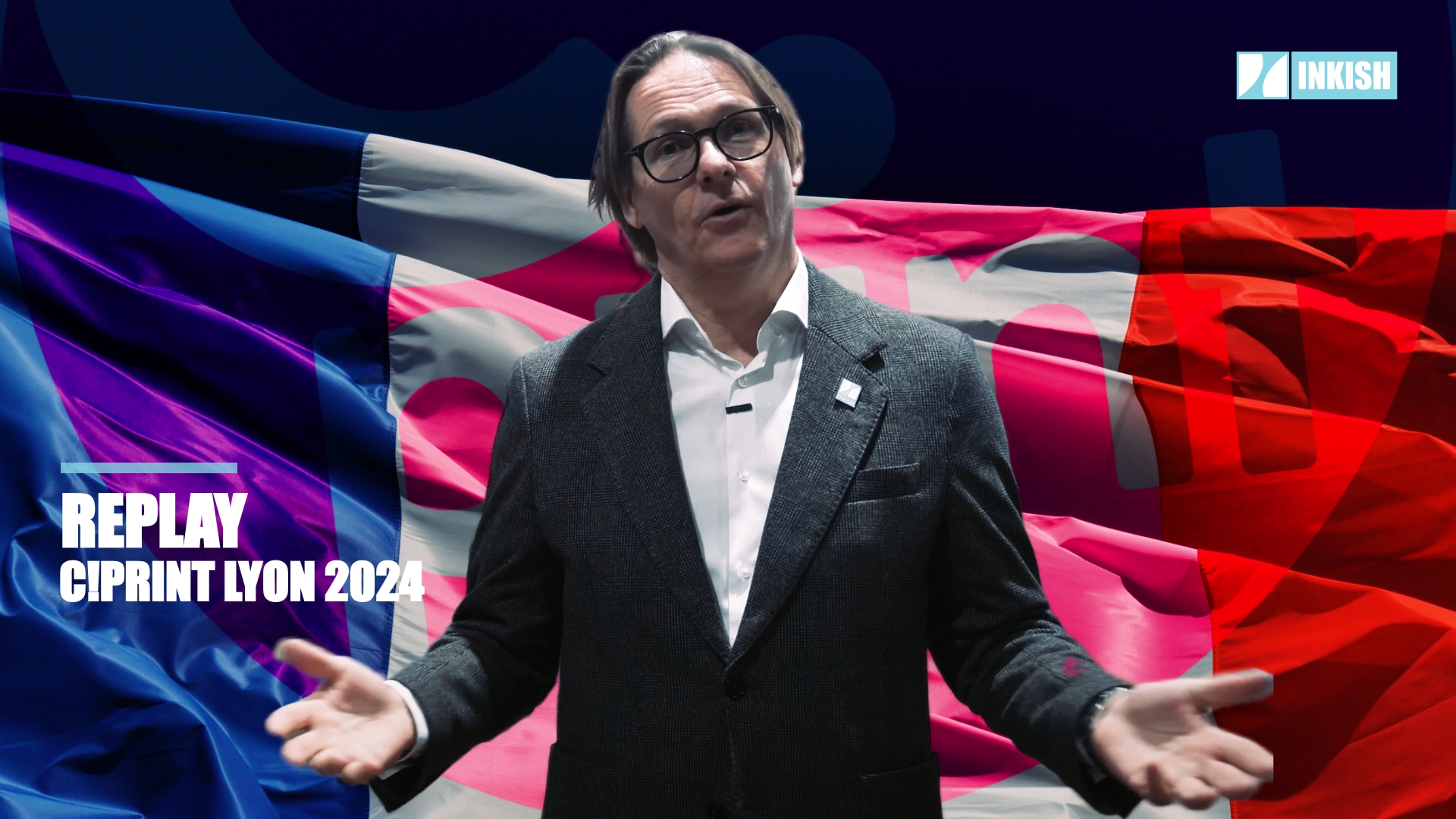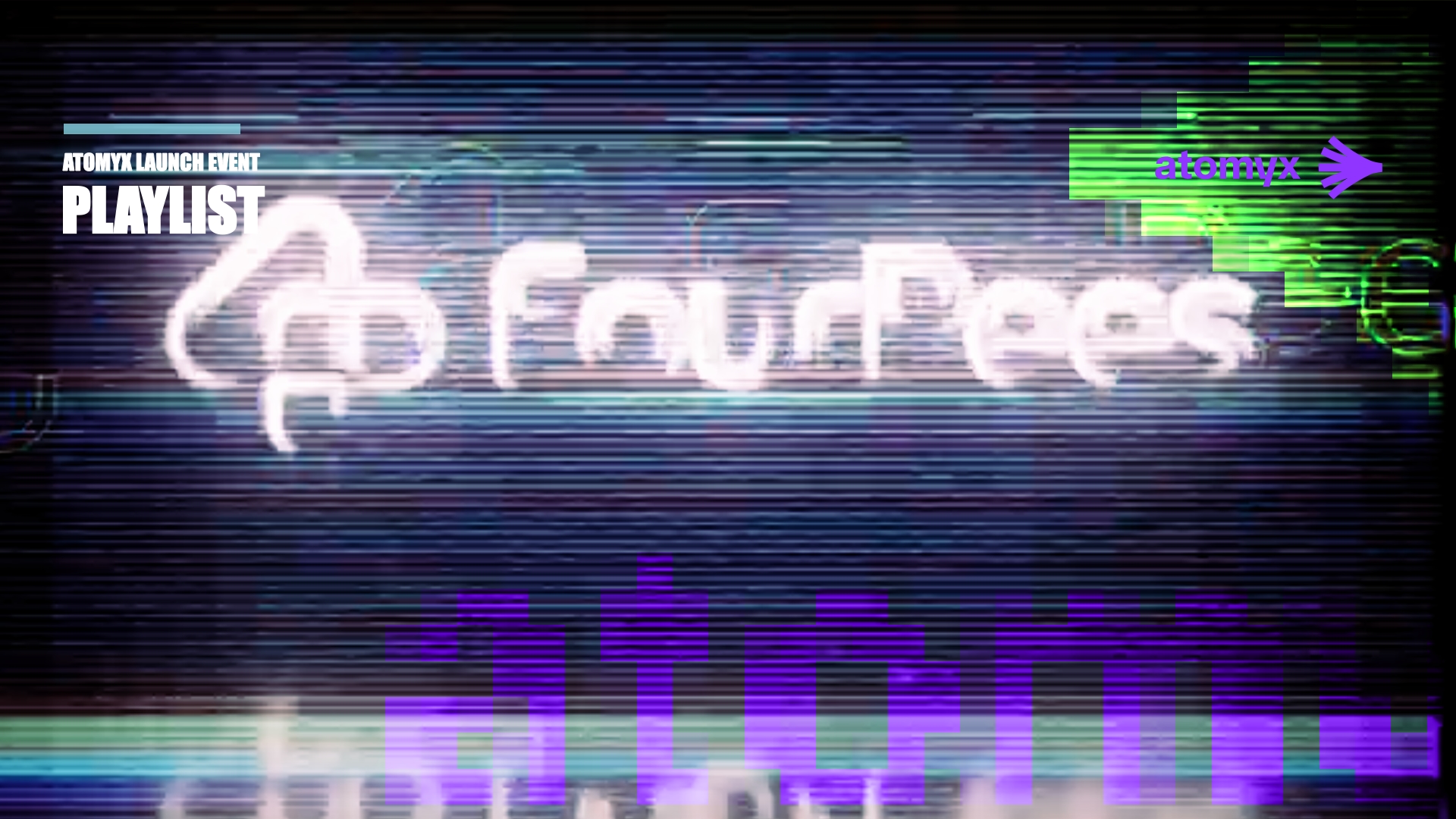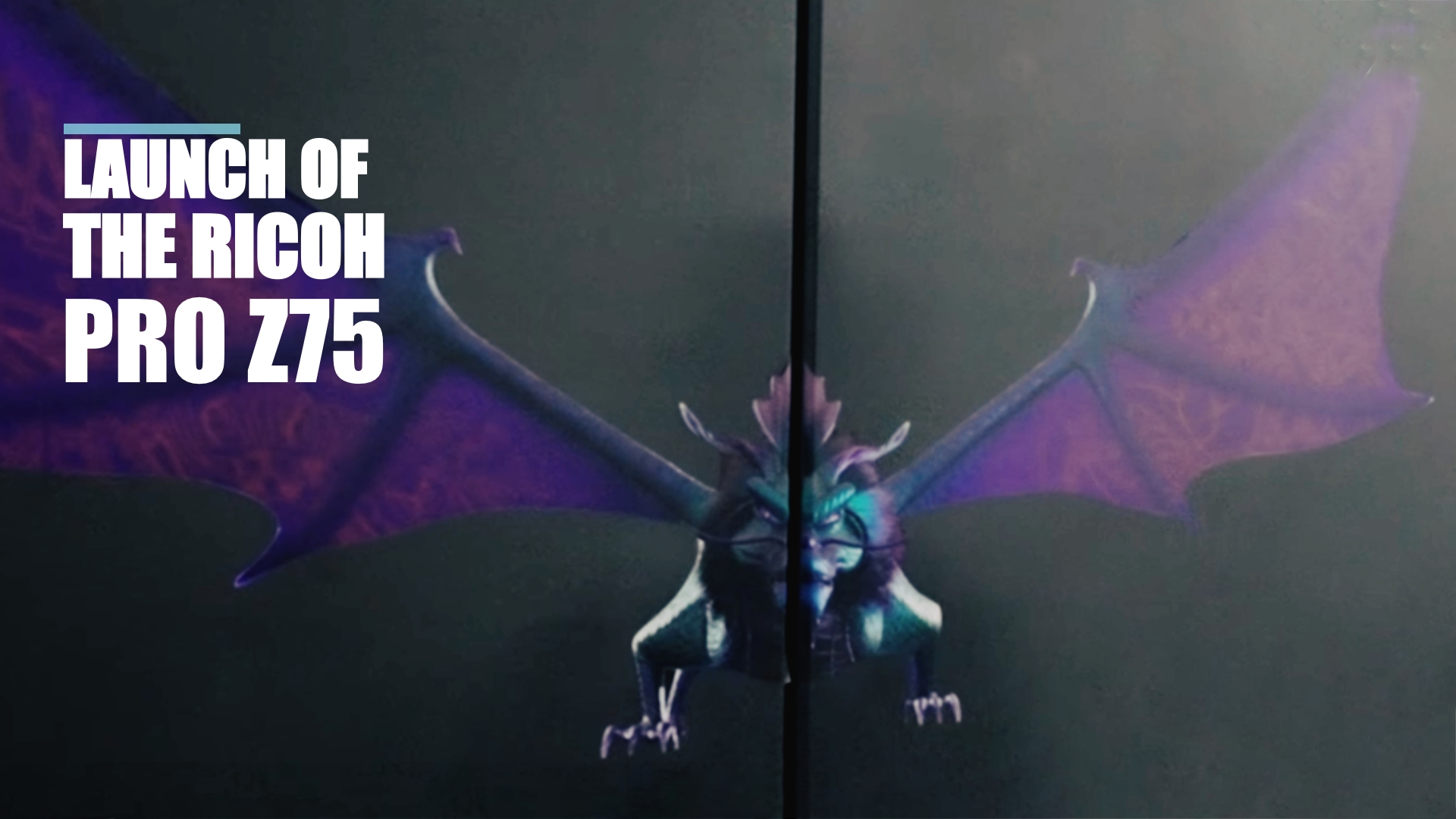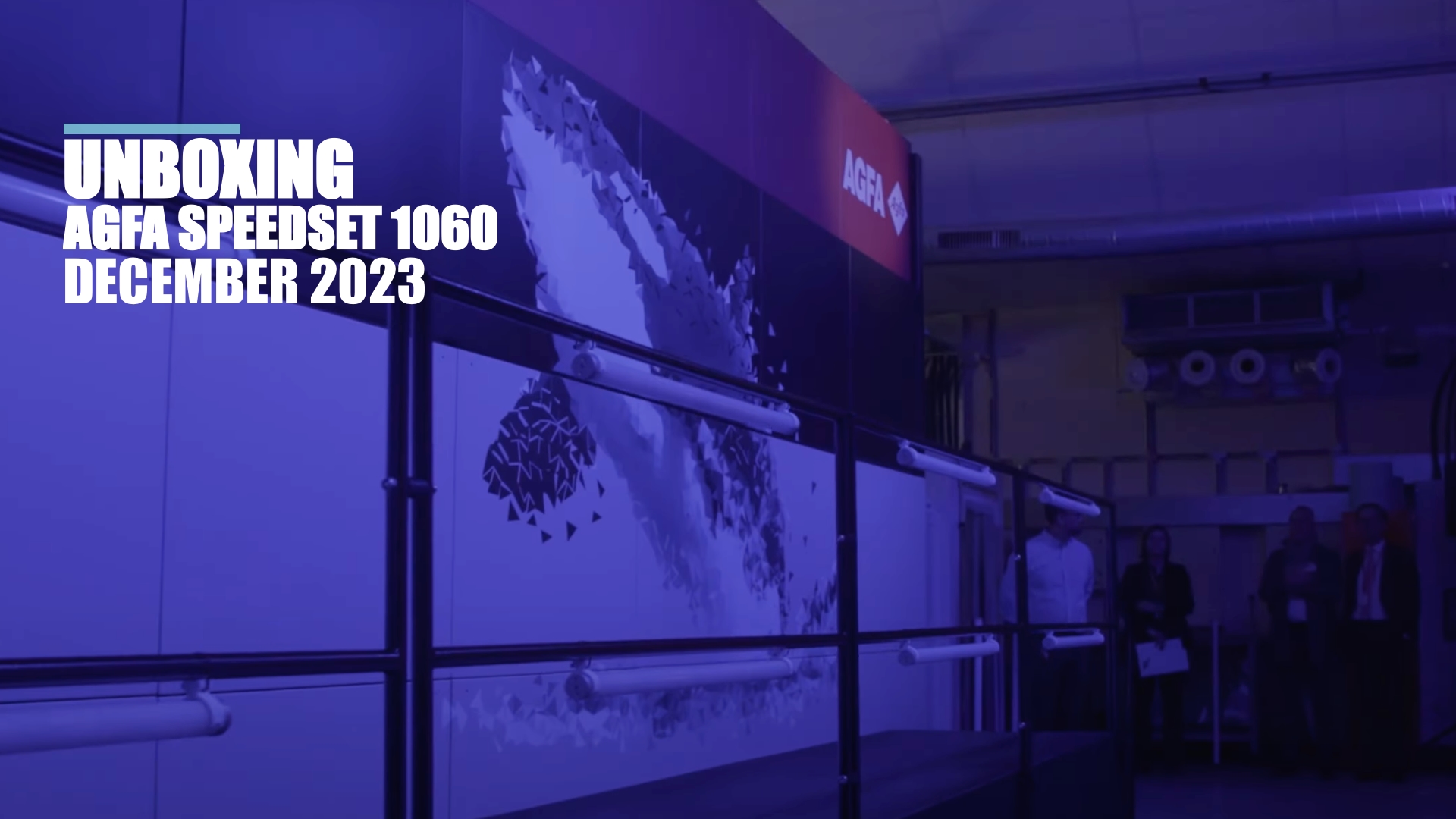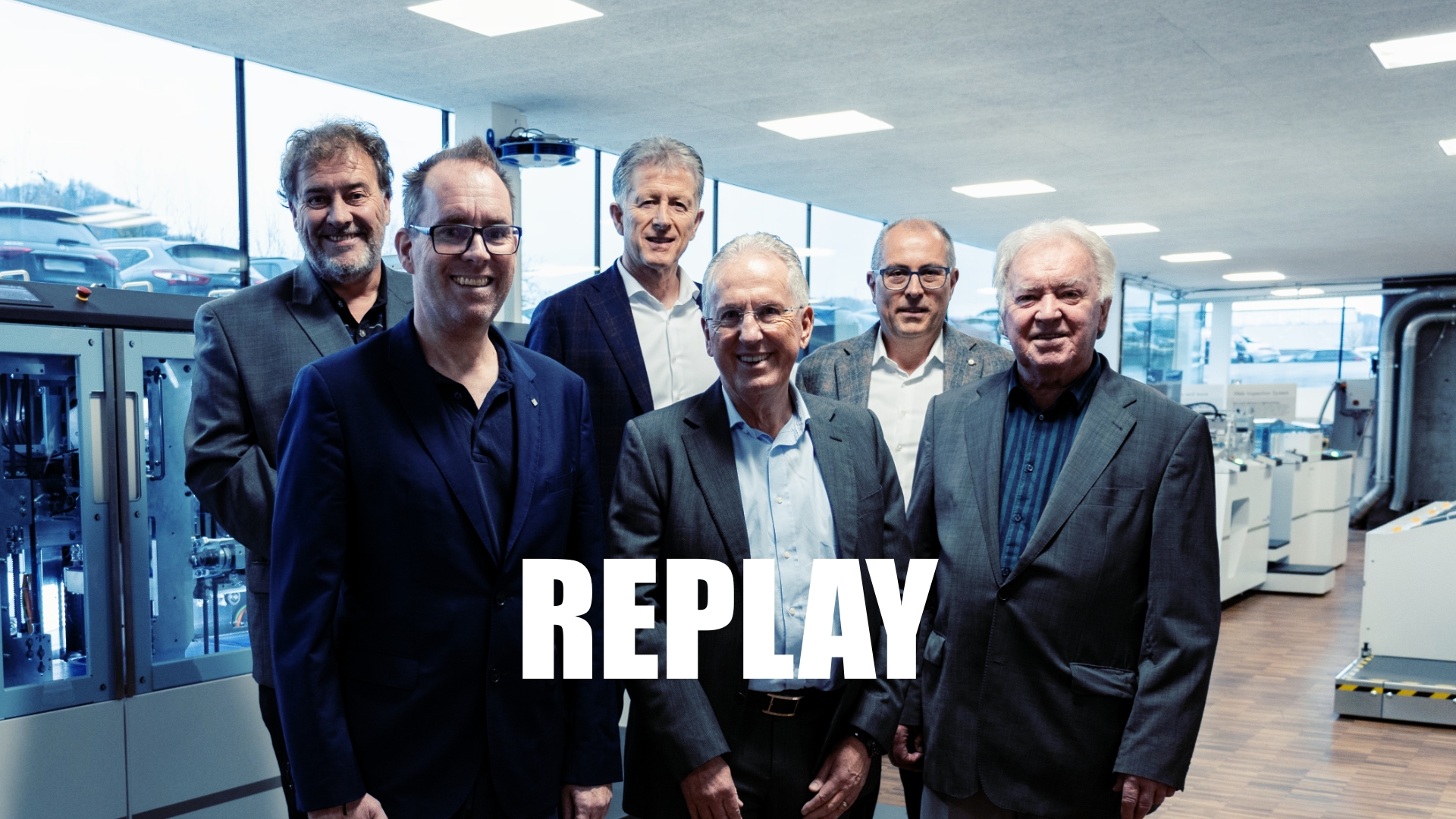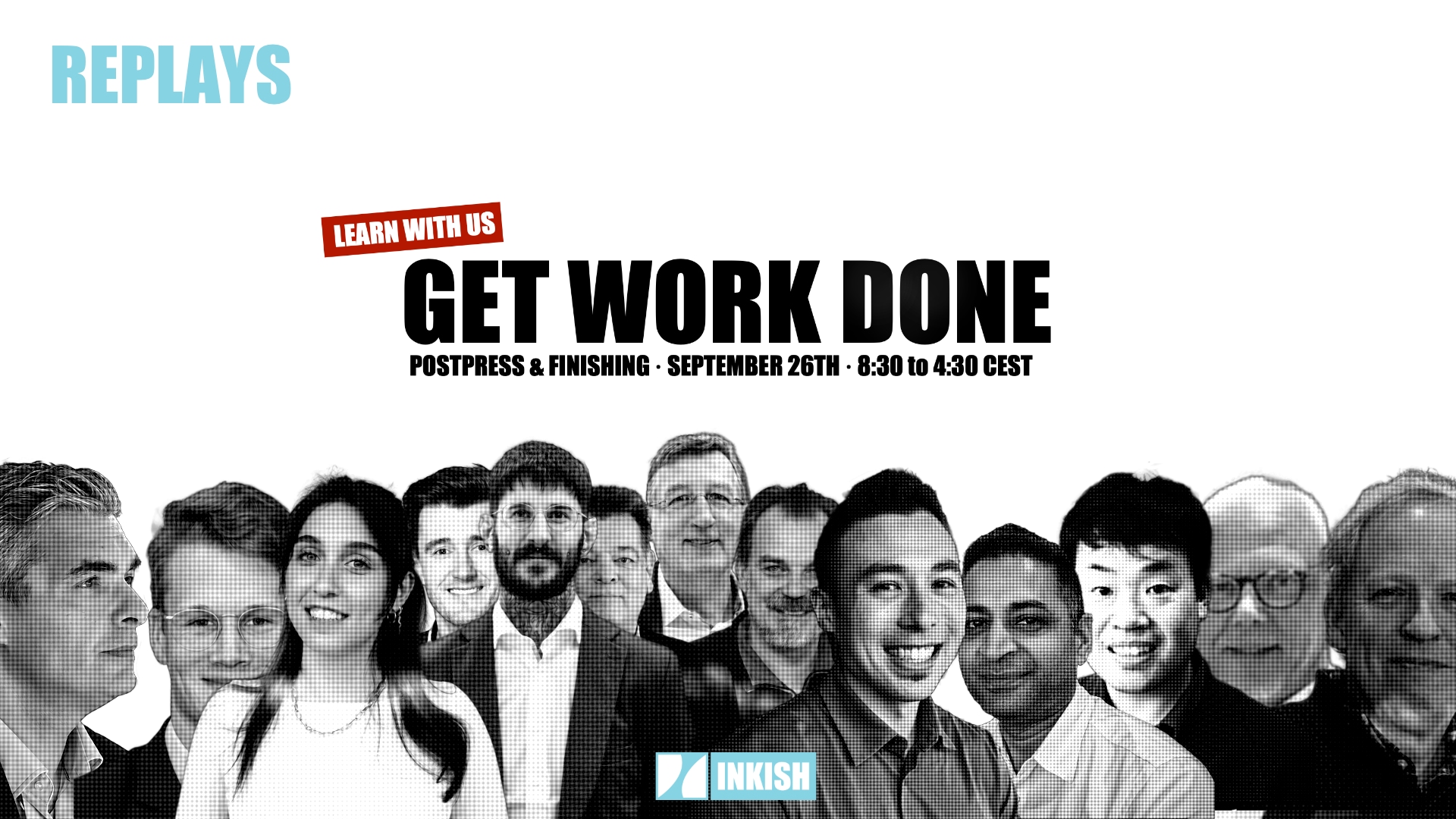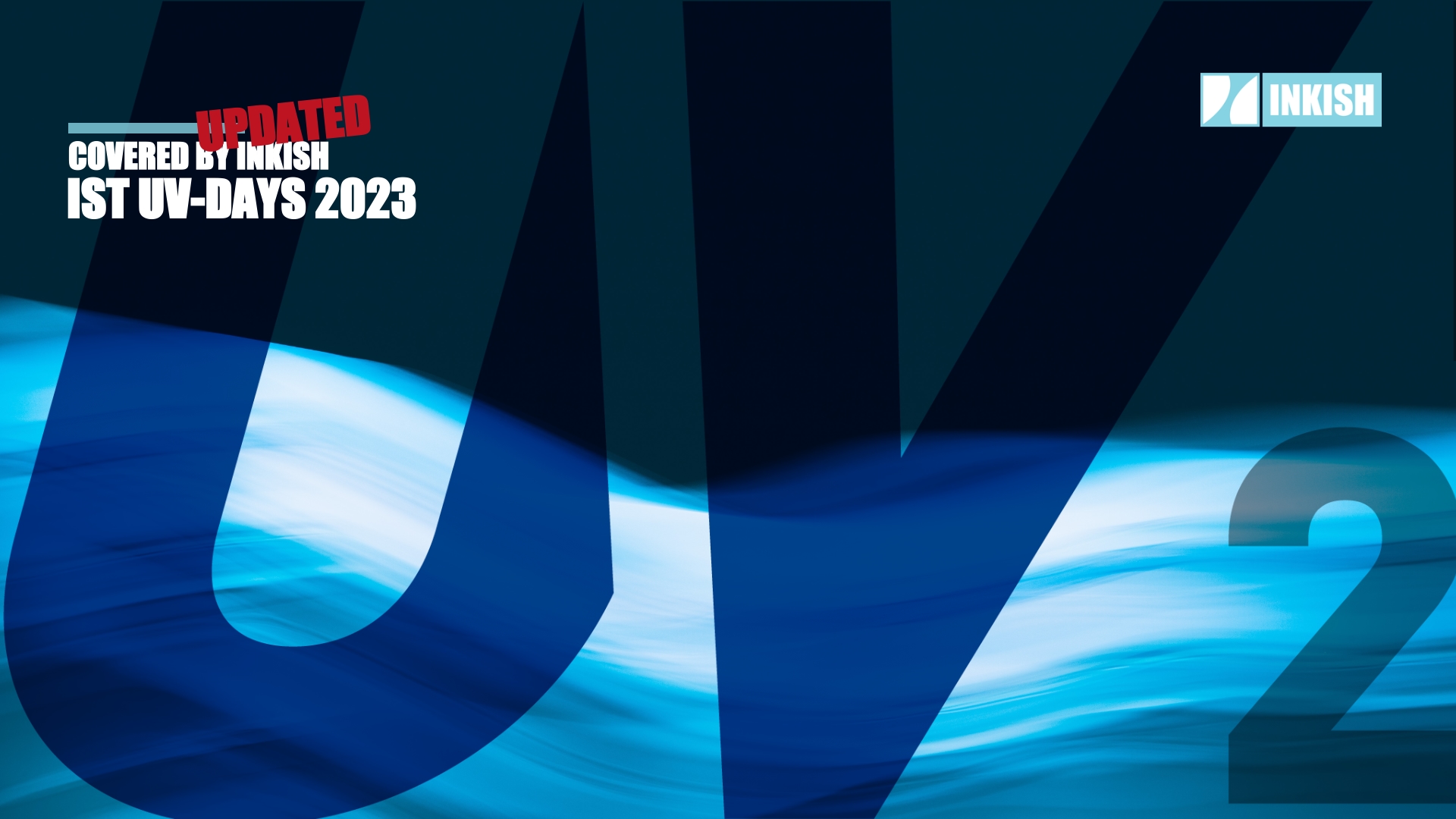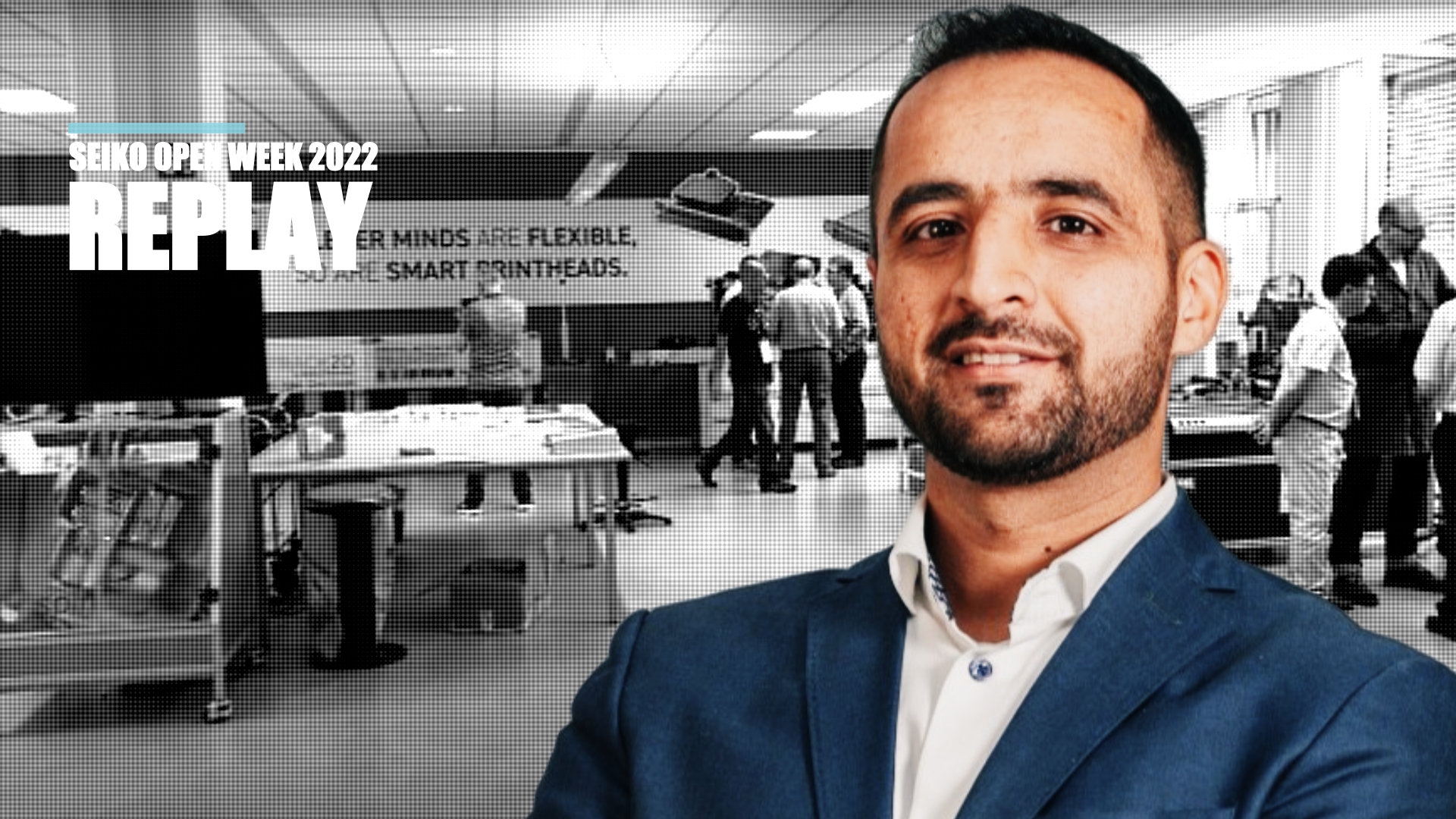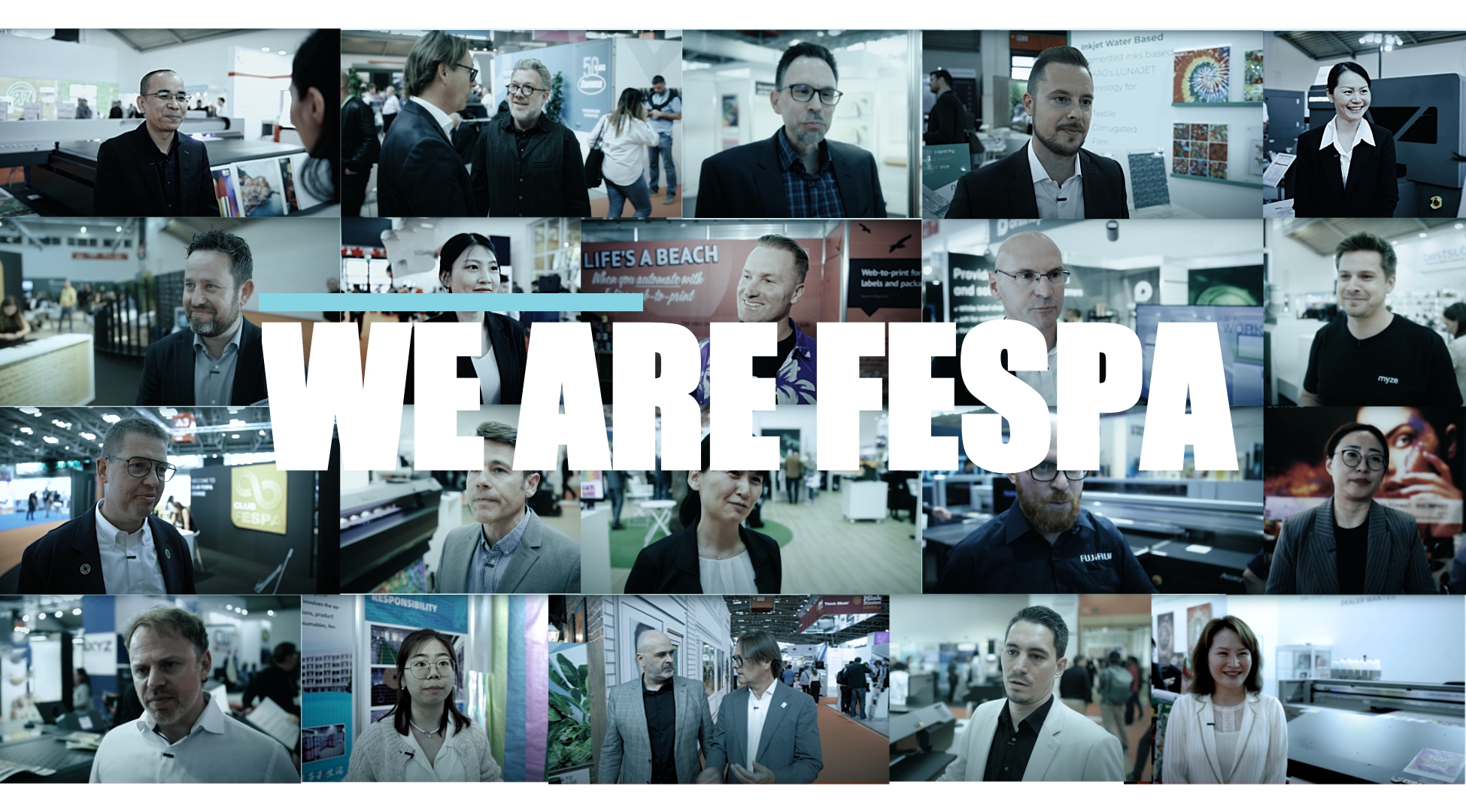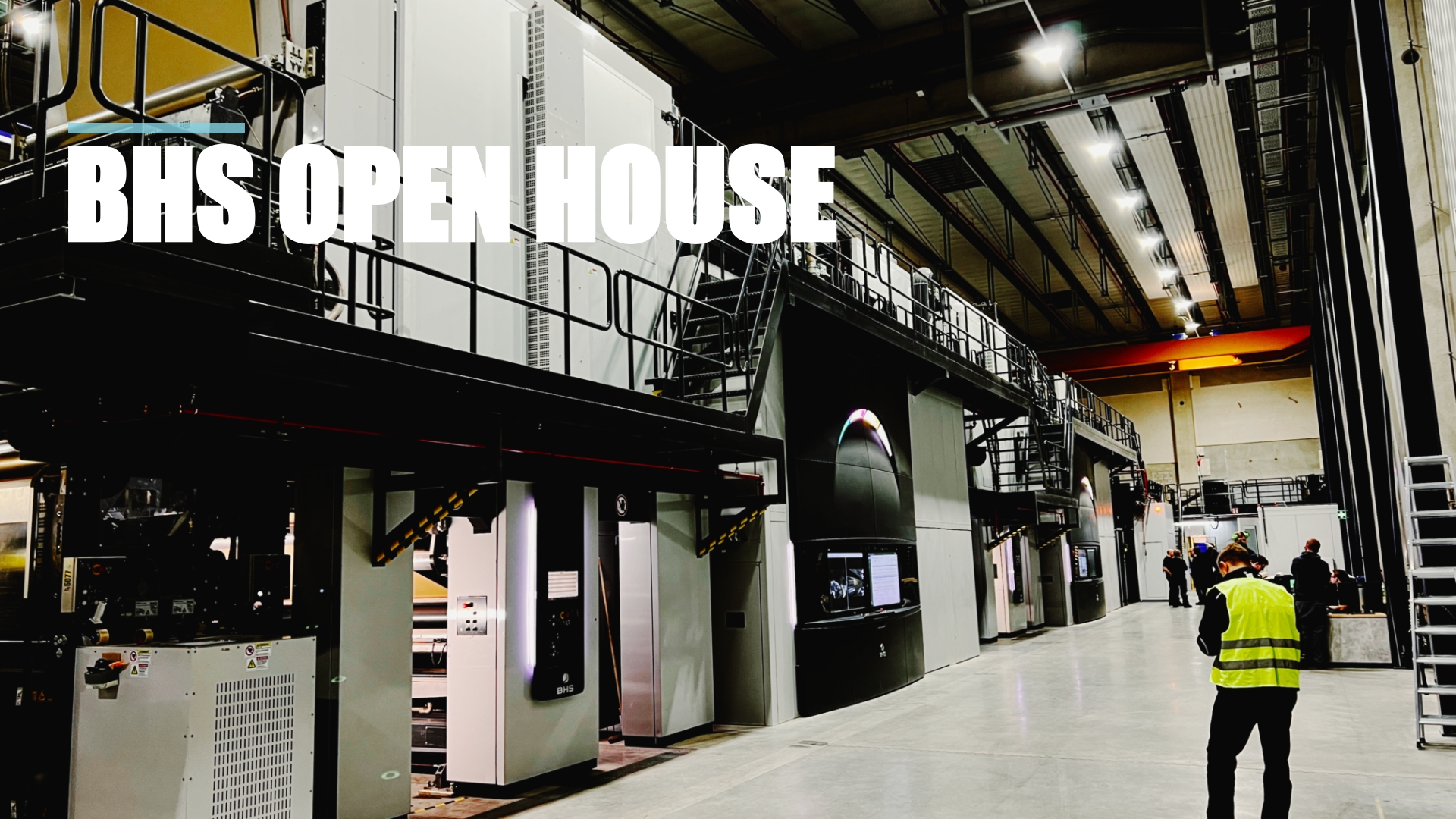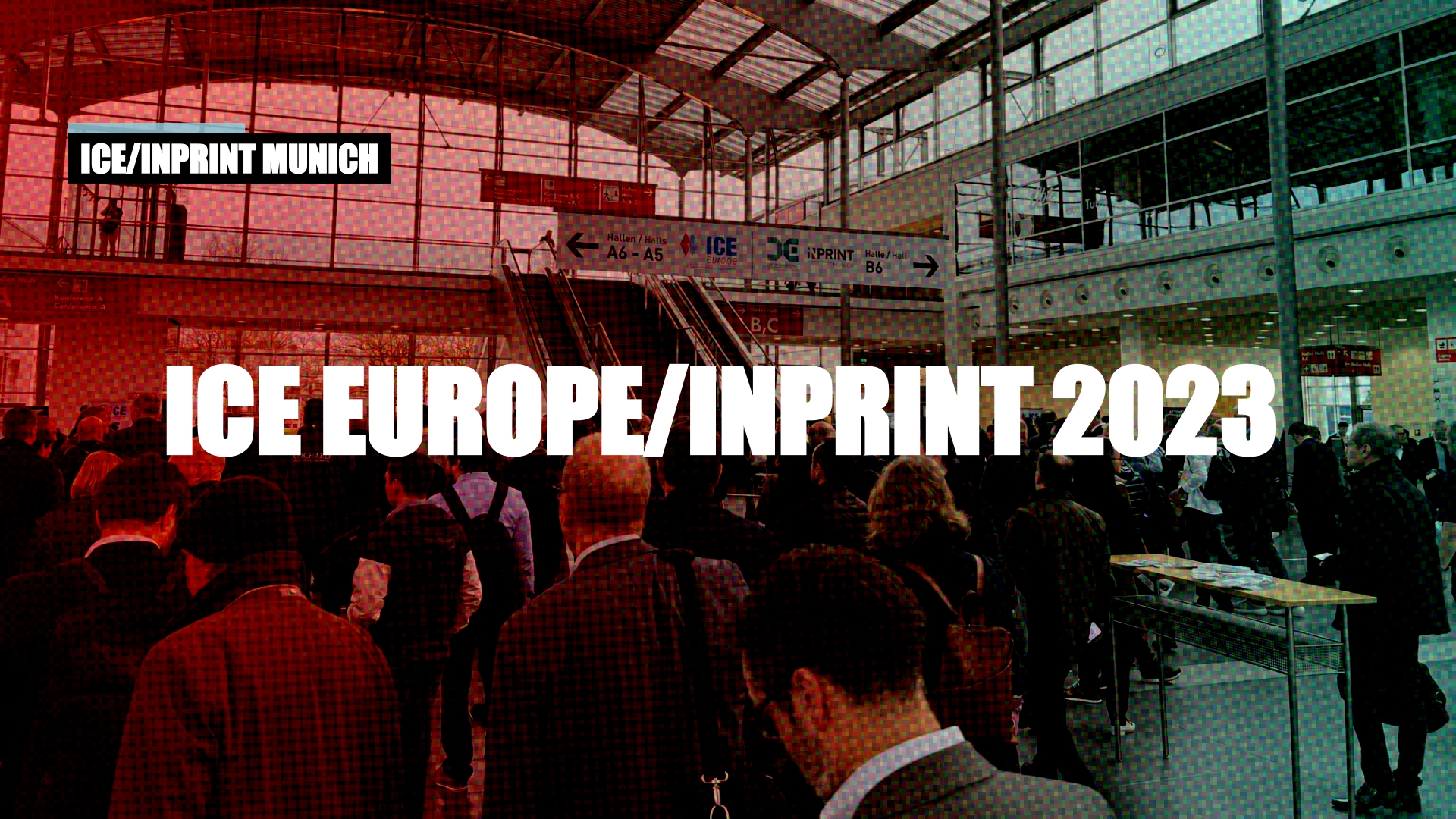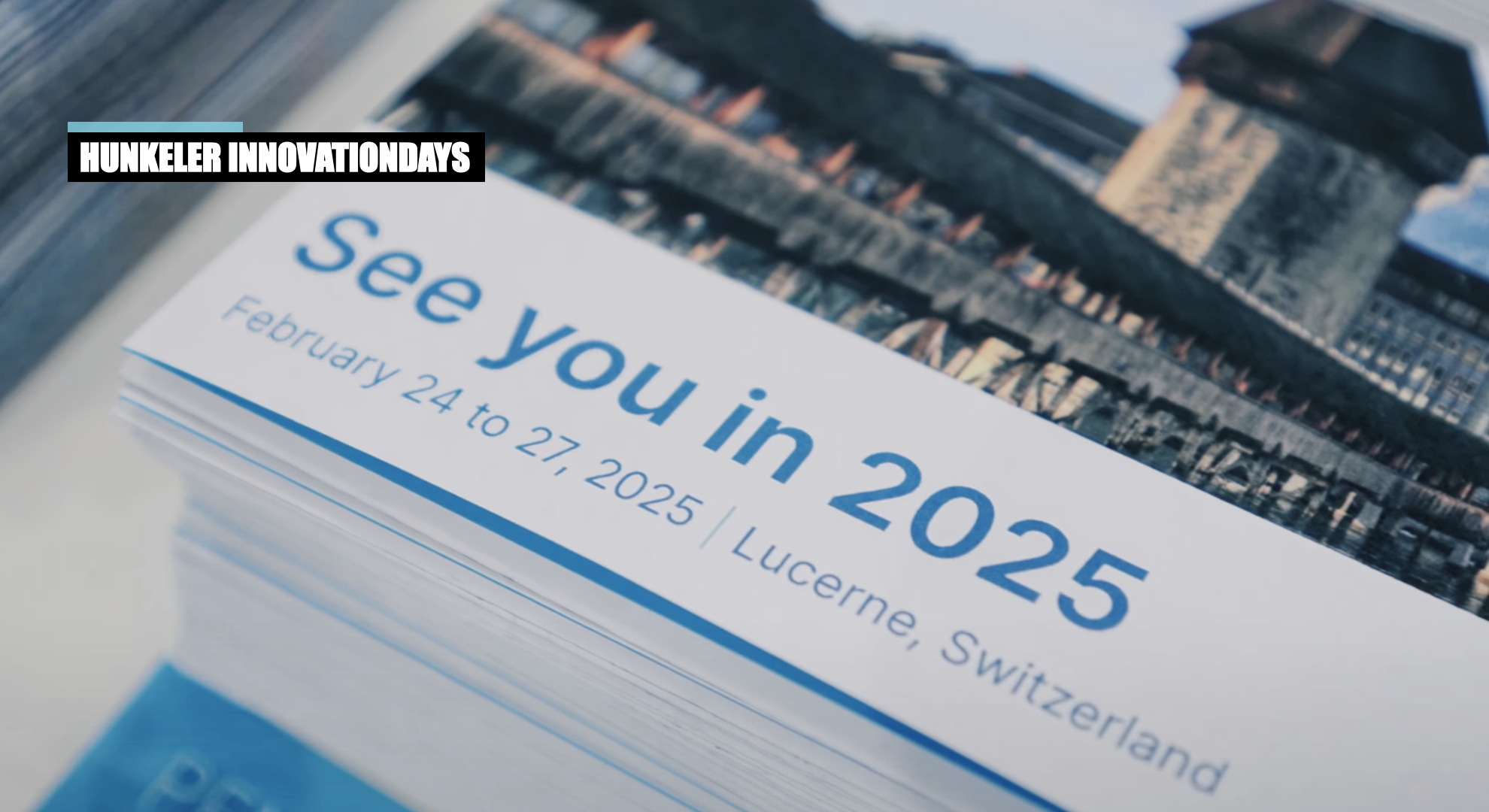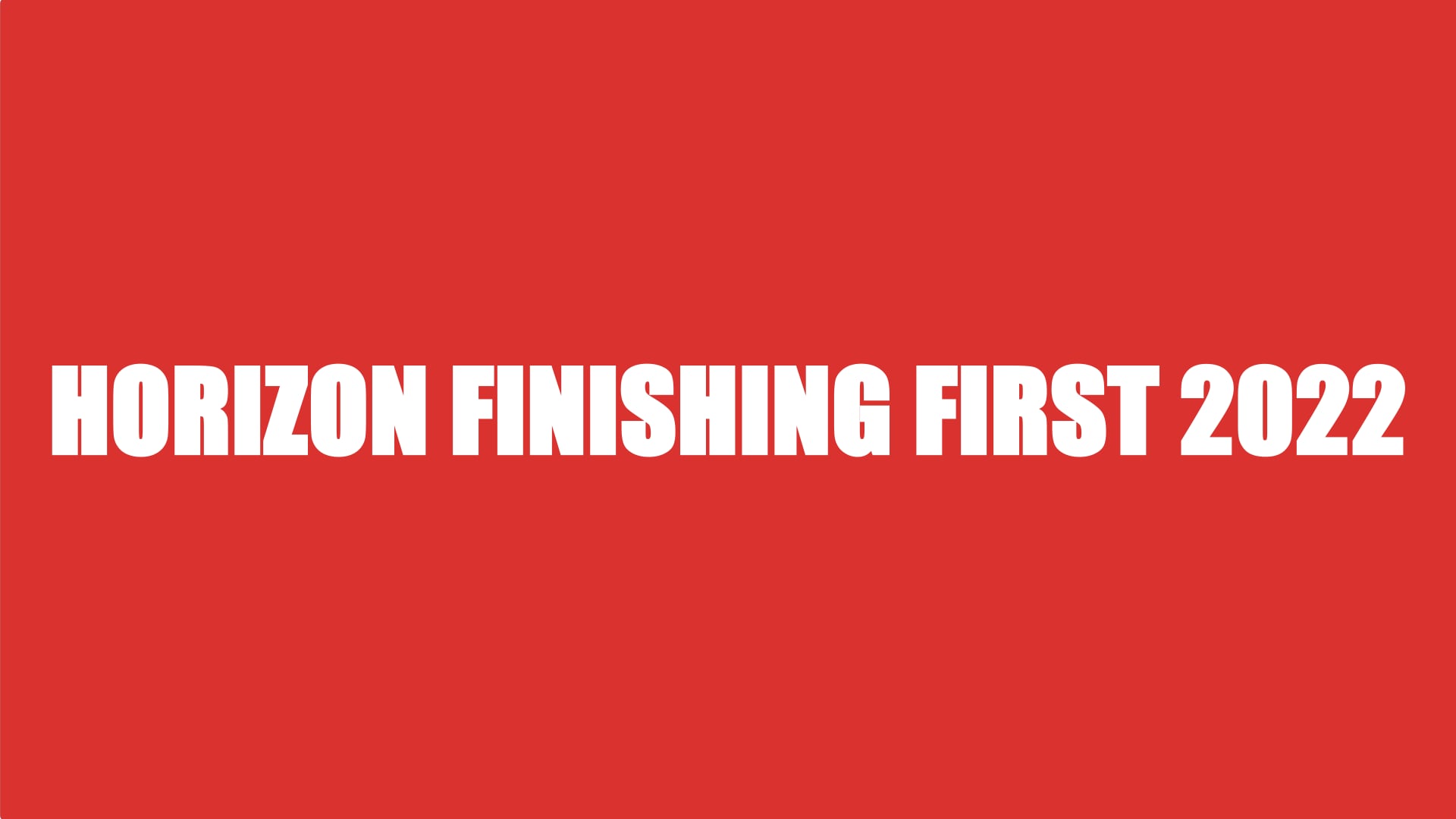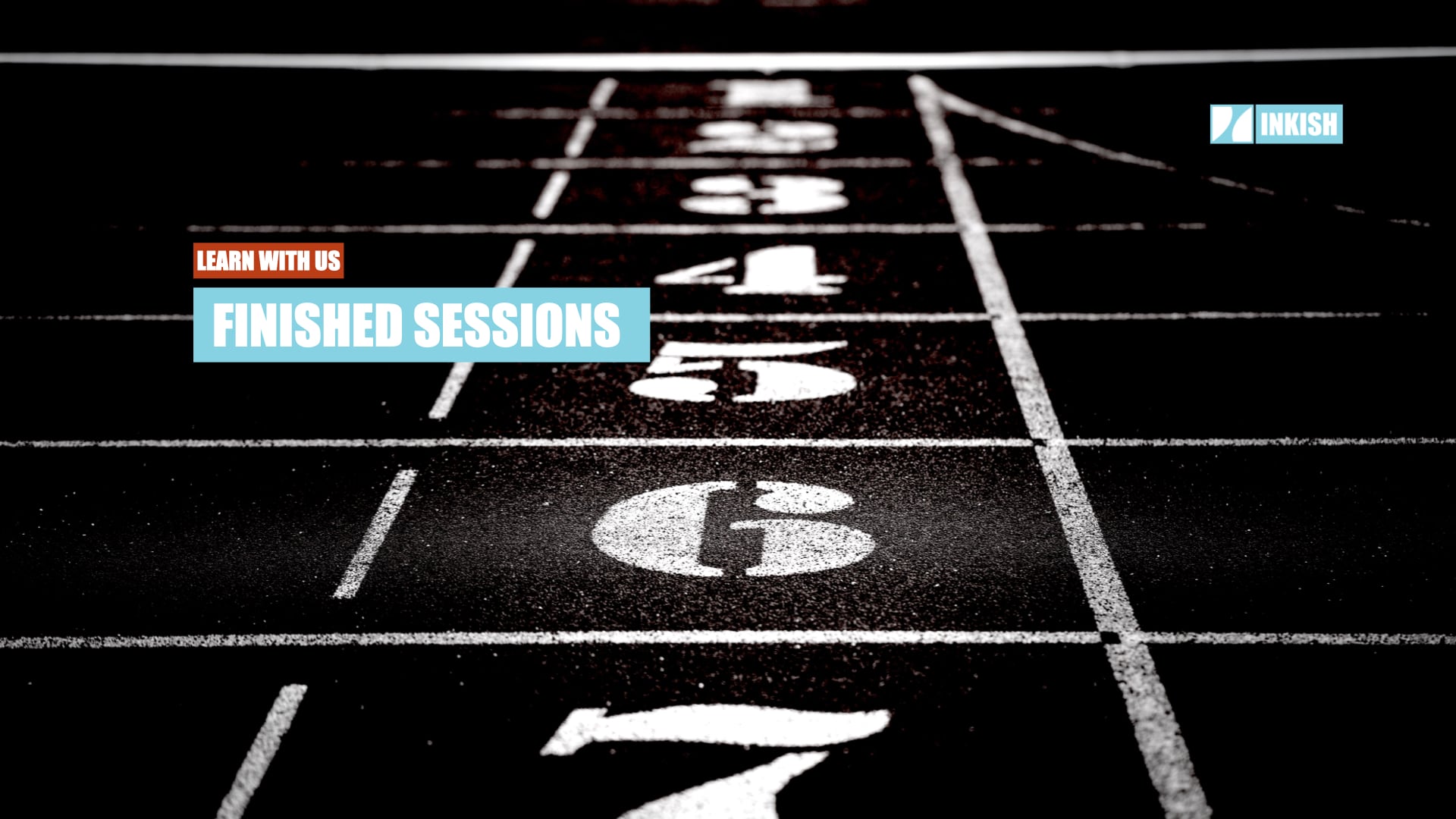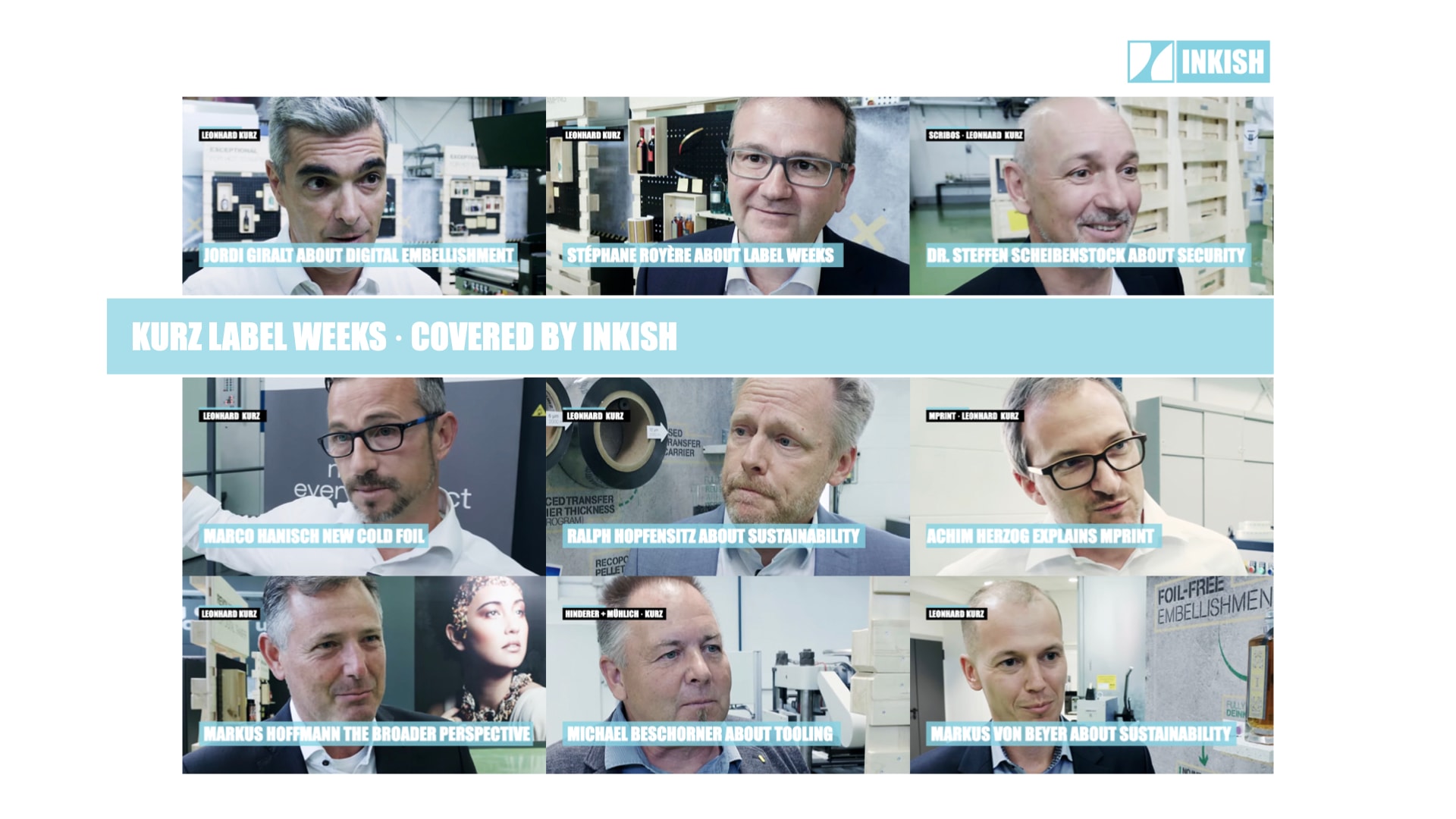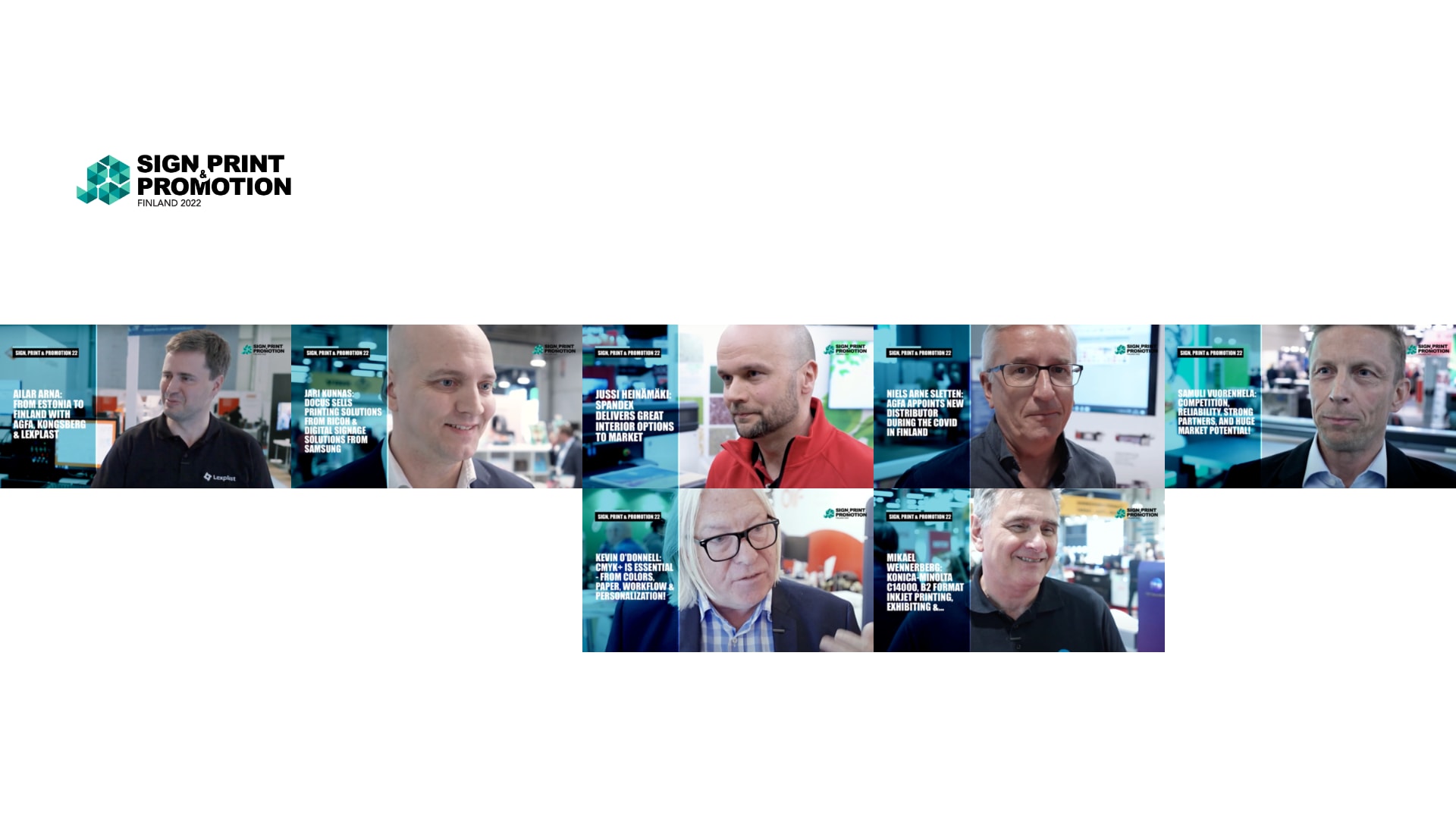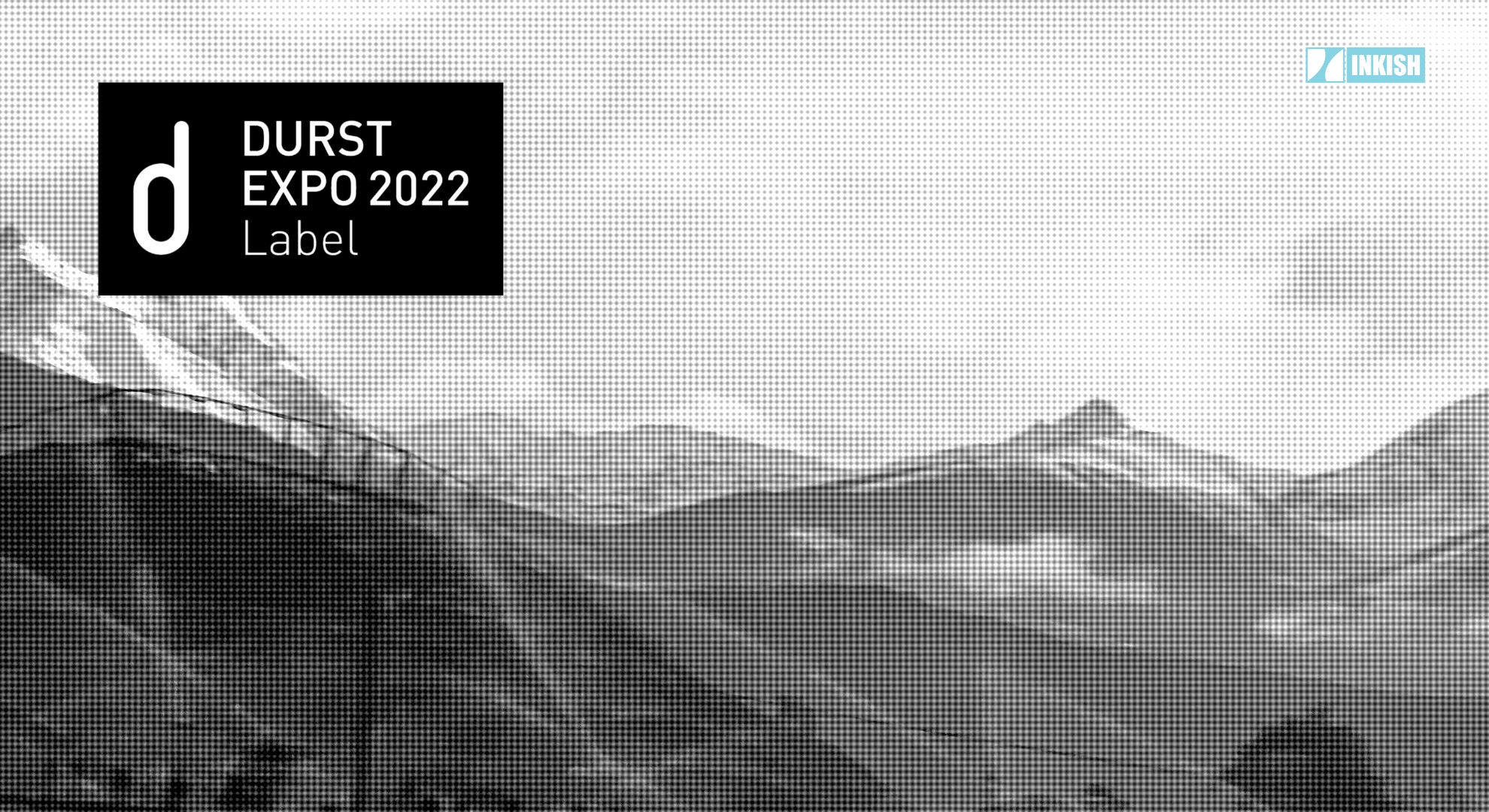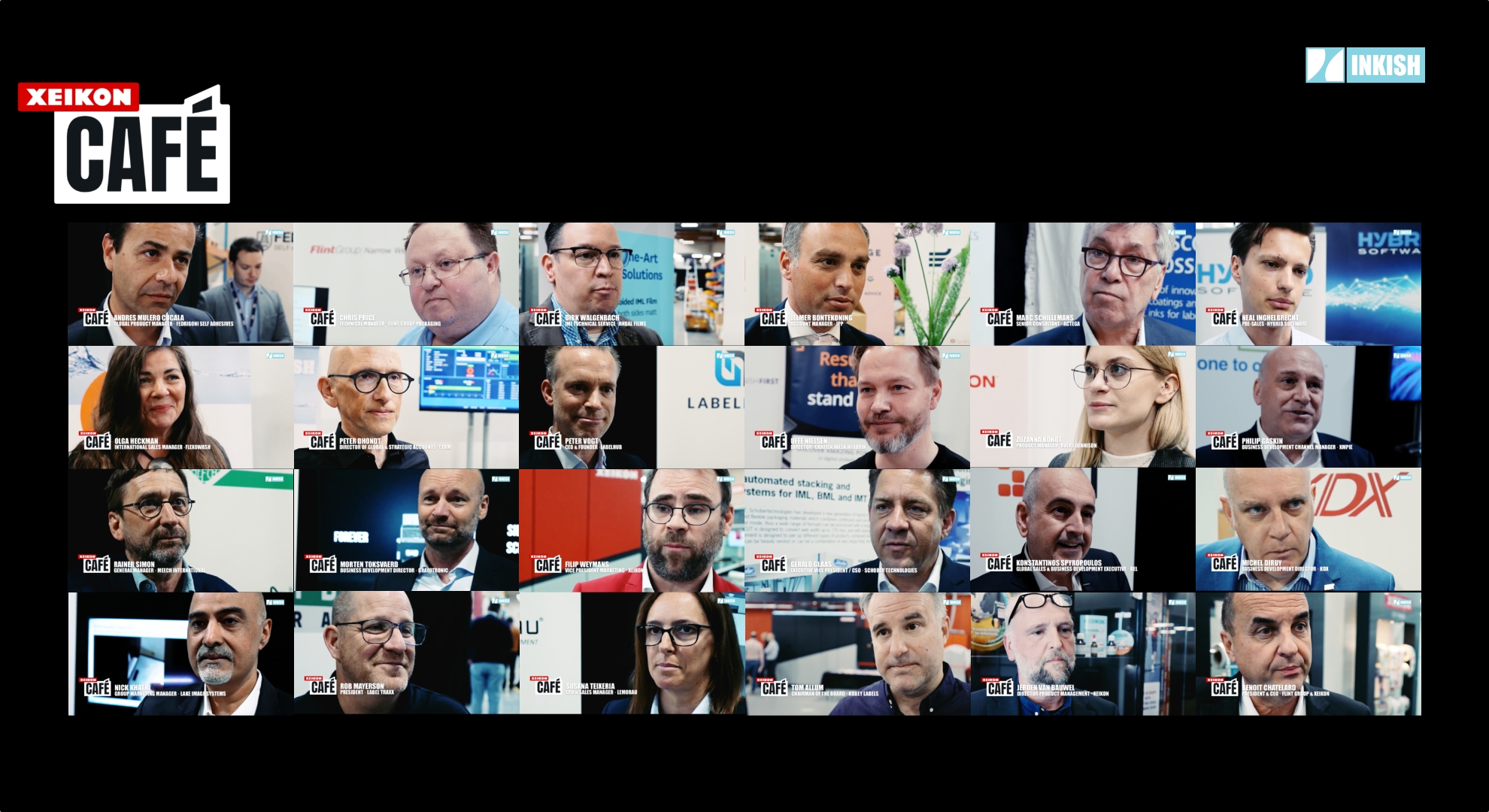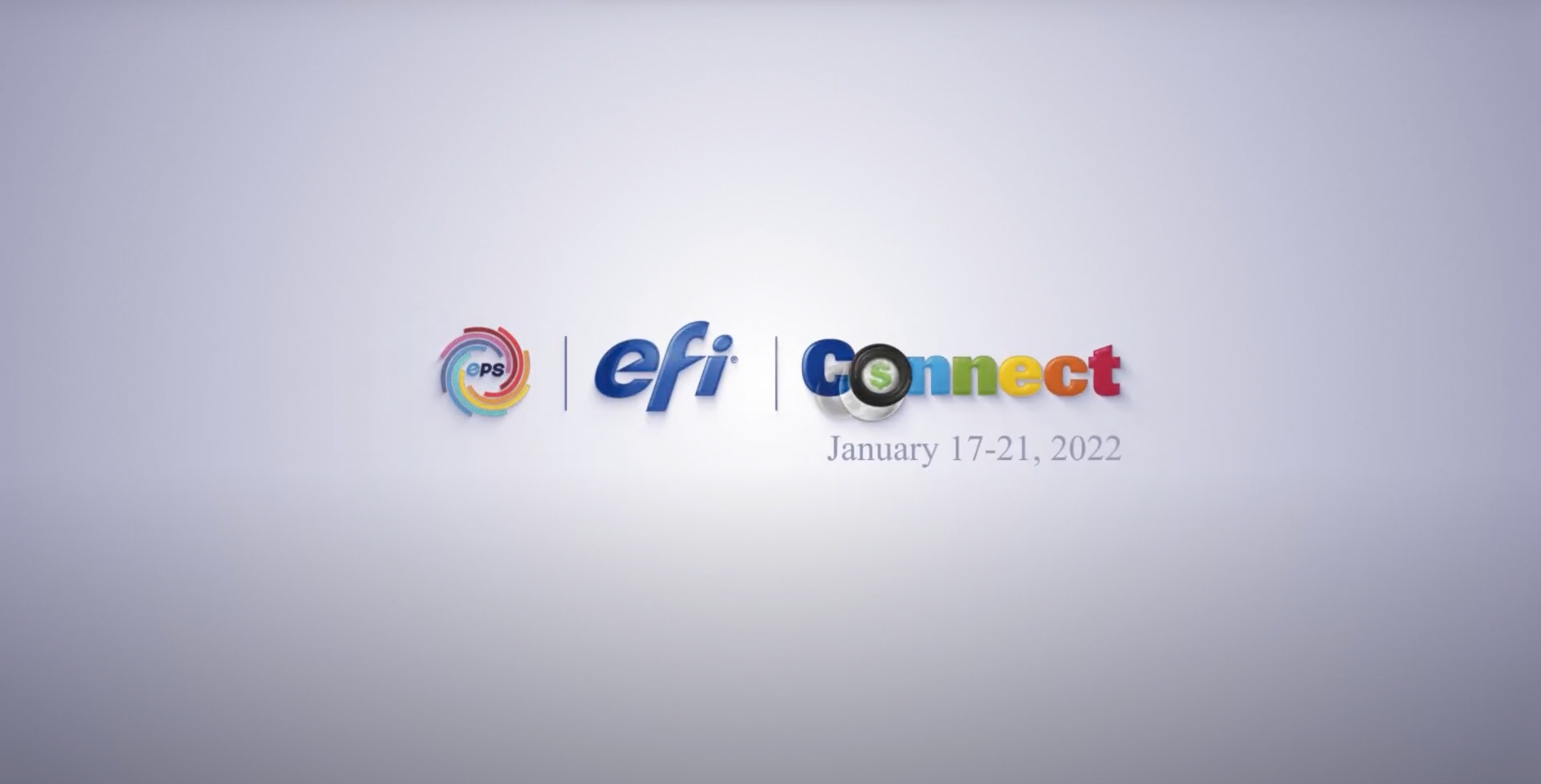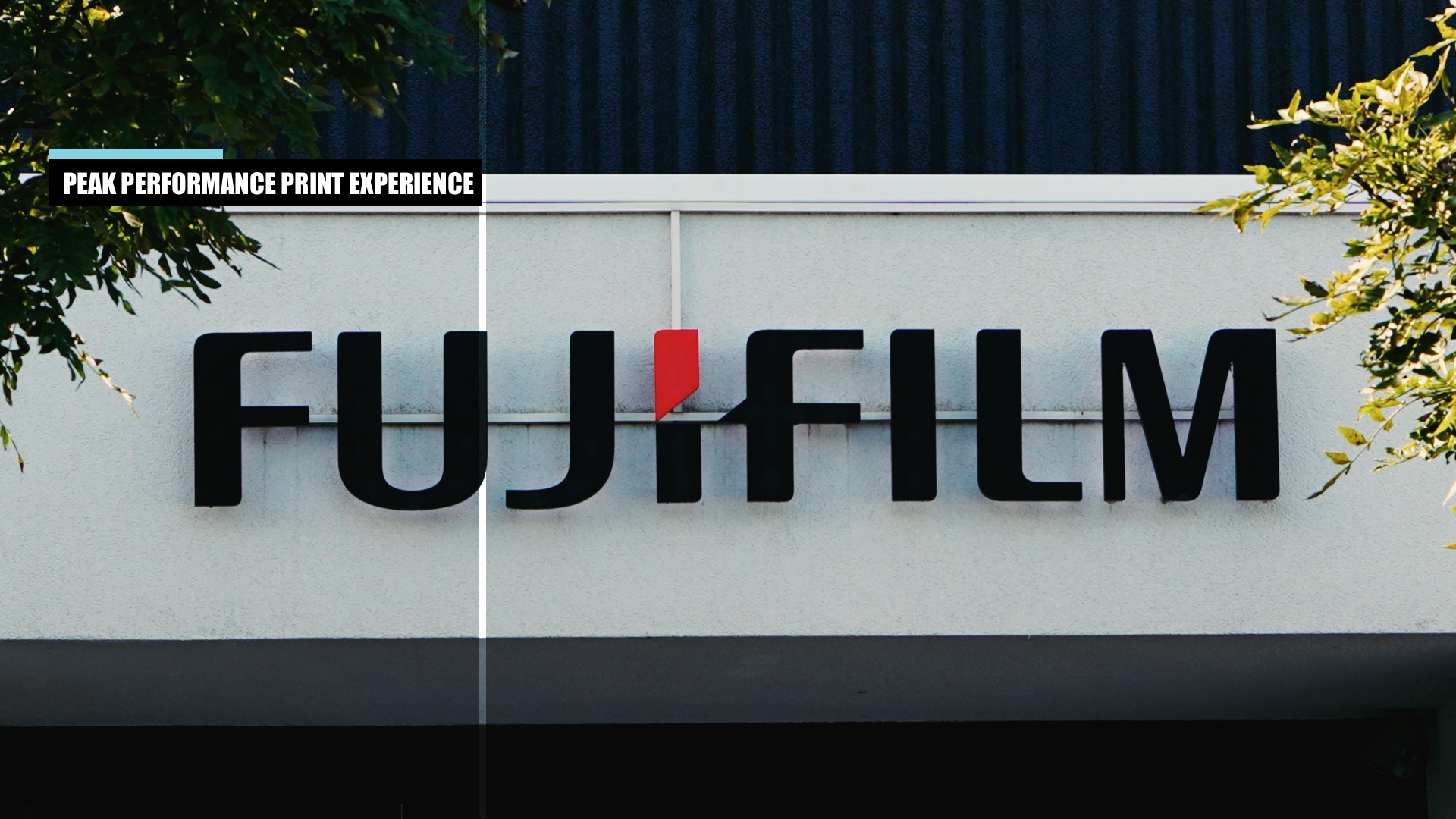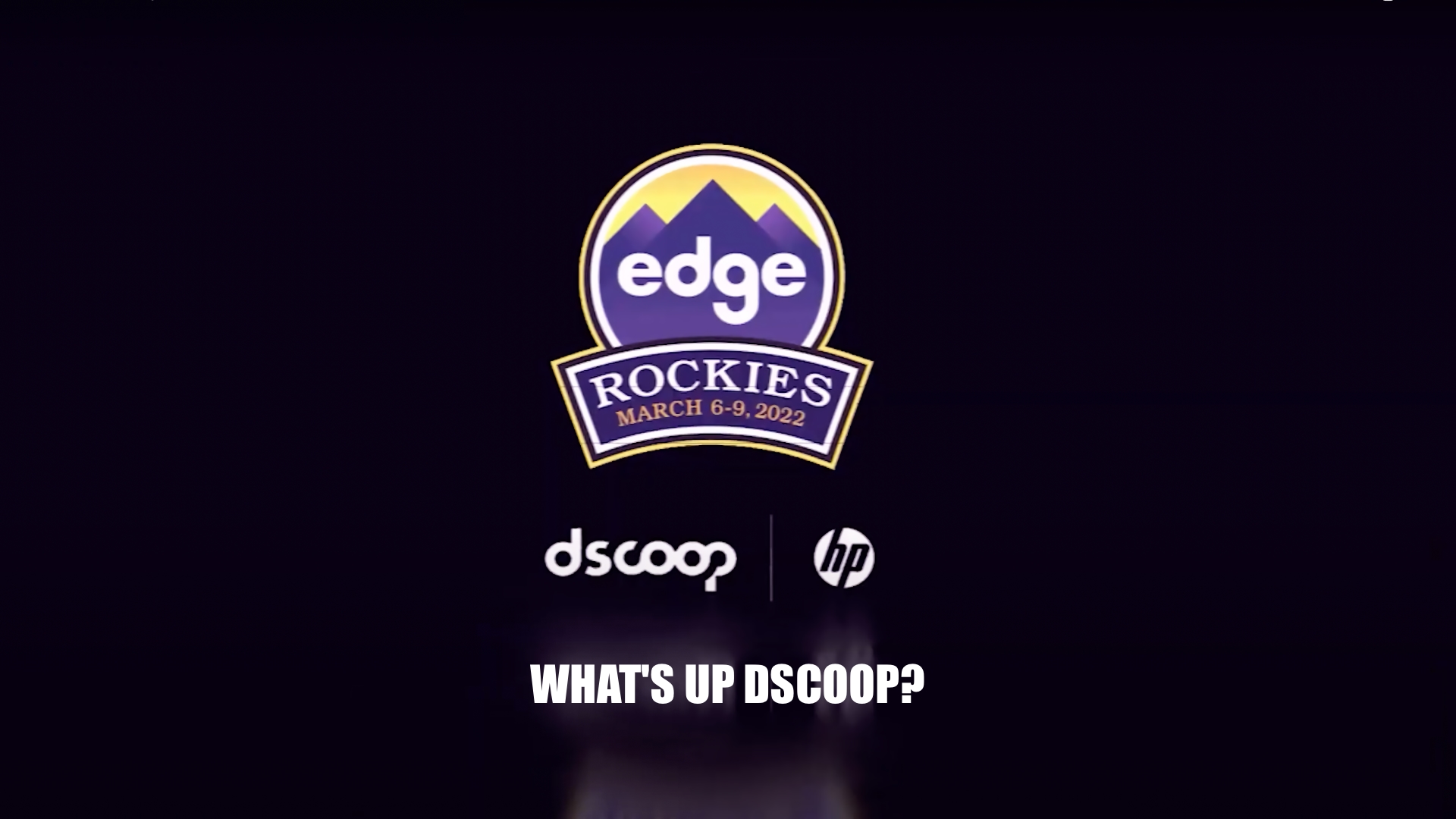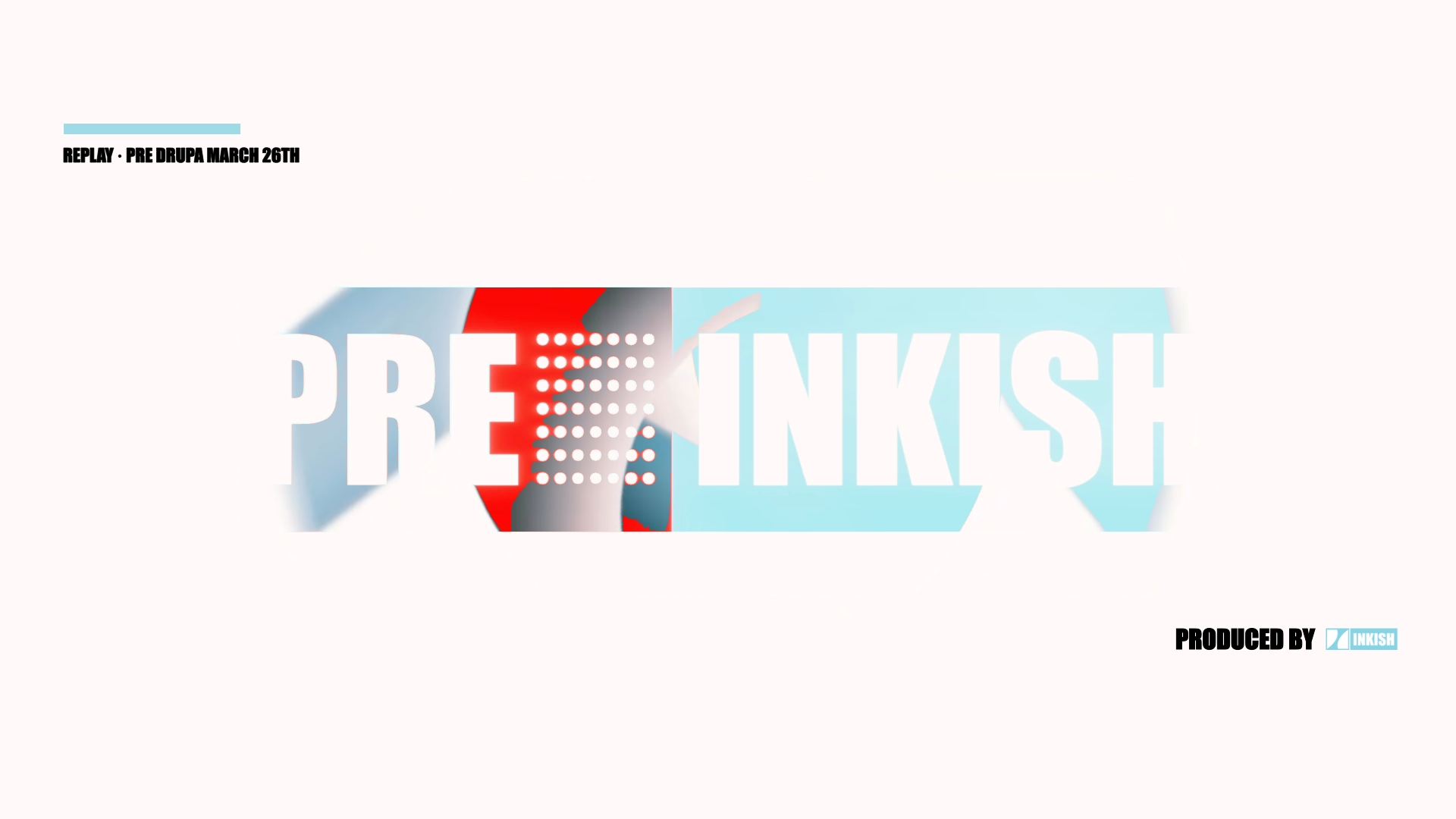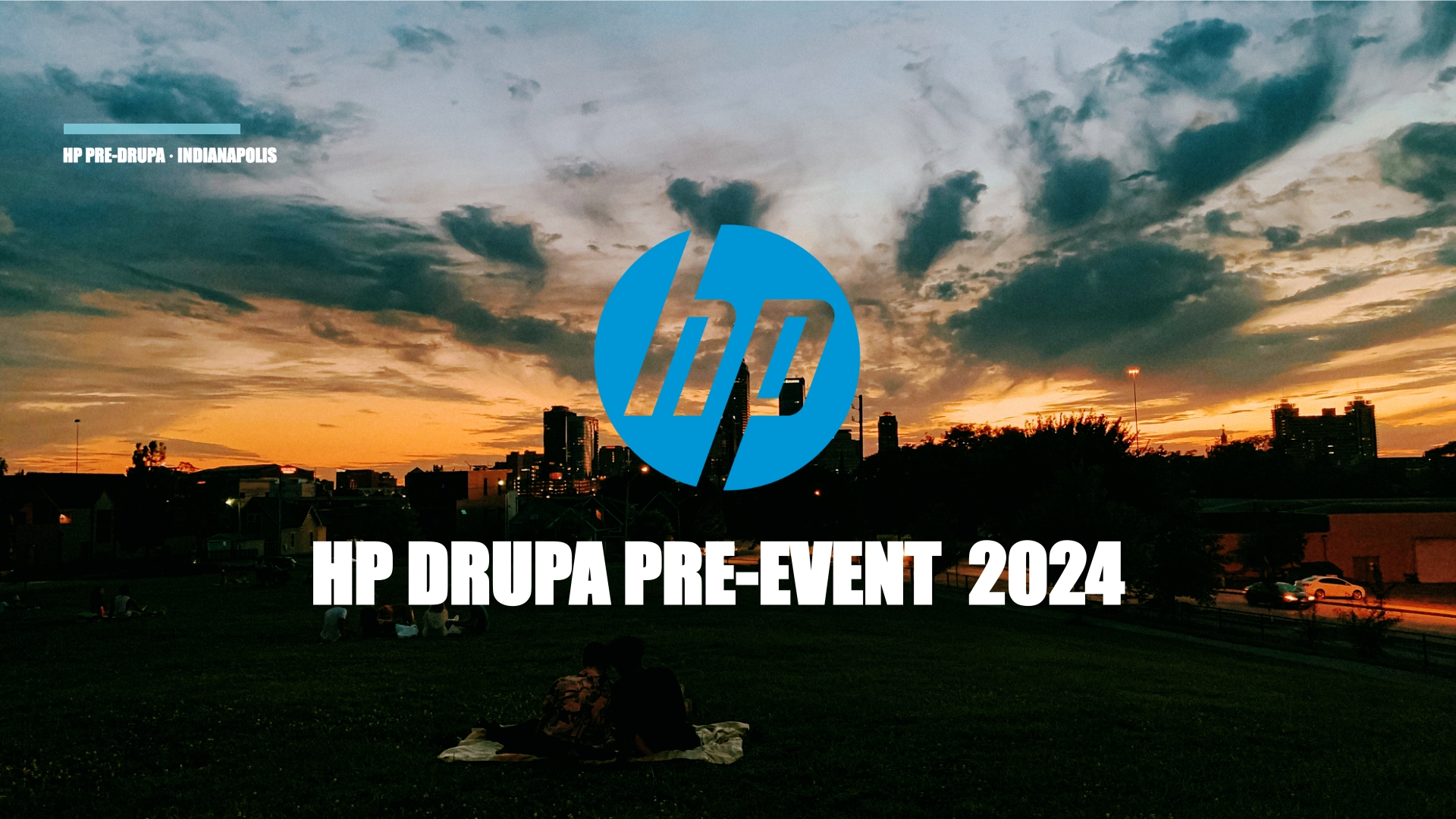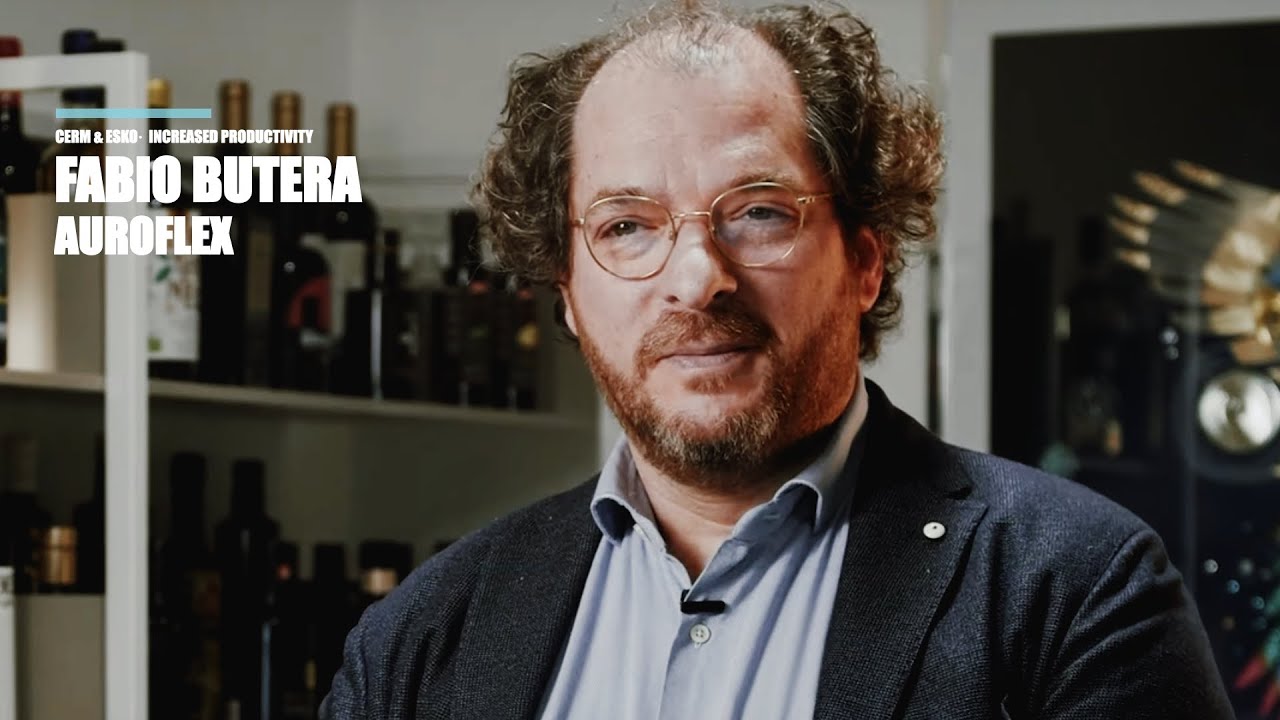INKISH.TV proudly presents: Deborah Corn · Intergalactic Ambassador to the Printerverse
Deborah Corn is a well-known person in the printing industry. At almost every event she appears with her iconic look and her sharp tongue. She is by far the person that has done most to get INKISH into especially the US-print industry, and we consider her a good friend. While we were working together on Project Peacock Peeks which very soon will be delivered to you (and it’s cool), we got the chance to make this ‘Conversations’ with her. Like the other conversations we have done with people like Thayer Long, Wim Fransen, Richard Askam, Peter Ollén and many more – this is an almost un-edited conversation between Deborah Corn and editor Morten Reitoft. Enjoy.
I’m here with Deborah Corn, the Intergalactic Ambassador of the Printerverse. So nice to meet you.
So nice to meet me? Yeah? So nice to meet me.
Cheers. So nice to meet me.
So, you really like cocktails?
No. That’s water, actually.
That’s water.
I don’t drink. Yeah.
Okay, yeah.
I don’t drink alcohol.
And I think it’s good that you say that because, otherwise, you could end up in a situation with some of your friends and partners in the industry, right?
Yes. When I go out and they try to buy me drinks, I’m like, “I don’t drink.” They’ll be like, “I saw you on that video.”
But I mean, you are … As I know I’ve said that to you many times, but you have kind of become a celebrity in the printing industry.
Enh!
Enh! So how did you become that? I mean, let’s just say that you are a celebrity because you have like maybe the largest audience as a single person in the entire world, I guess, right? More or less, right?
There’s a pretty significant amount of people that all have similar goals of getting information that is unfiltered. And I’m proud to be … sit in the middle of all those people and help them connect with each other. But it’s a pretty significant audience, it’s over 150,000 people now.
It’s amazing. And how did you get into this?
I didn’t get into it, it kind of found me, Morten. It’s a very strange story. I was working in advertising and I lost my job. And I was networking with people, and I had run out of people-
I can say you were networking already before you started the Printerverse-
Well, you… and the …
Before it was called networking, it was called call someone you know and see if they know of a job. So that’s what I was doing. But when I had run out of those people that I knew, I … LinkedIn had just started groups, so I was like, “Well, instead of me looking for them, let me bring them to me.” So there was my kind of my genius moment.
So, that was like the kind of initial …
Yes. Yes.
That was the starting point.
That would be, let’s say, the catalyst for the second a act of the movie, you know? Like that was the turning point. So- You would say that was a kind of the trailer? Or almost.
No, it was the turning point because everything from there changed, because then – It moved quite fast, right?
Not initially. I mean, it’s all relative, but … You know, it took some years. But I mean, it took some years, so …
But that’s still relatively fast because I mean you have like this like 110,000 members of print production professionals?
There’s like 95,000 members and that. But I … You know, it still … It just took some years. I mean, I’m not really sure what your …
But that was like a turning point. So, that made you actually … the starting point for making your own business, and all the other things that you do? Or-
It was a really strange thing that happened. You know, when I started that group I didn’t know that it was … become this. I was just trying to really network for a job. So, I invited other print customers, and designers, and creatives, and people … headhunters in that area. And printers, because printers love getting print customers jobs, especially in advertising agencies.
So, once the print customers came, and then, you know, I had a lot in common with them, so I could, you know, talk to them about what was going on in the world. But then some printers came, obviously, because it was customers. But what started happening is that they started actually asking questions.
To one another or to you? Or- Yes!
Okay, to one another. Okay.
No. “Does anyone know what this is called? Does anybody know where I can get this? What type of paper works best with this? Does anyone know how to save a PDF for this?” You know. And they just started interacting with each other, and telling their own connections about the group.
So, that was kind of like … Without even you knew it, there was like a huge demand for-
Exactly…. industry exchanging ideas, and-
Exactly…. knowledge, basically.
And all I was doing was I was smart enough to see that something was going on, and I was smart enough to know enough about what … a little bit enough about what they were talking about that I could contribute to the conversations, I could start the conversations, or at this point, I knew who could help find the conversations.
So, as the printers started coming in there more, the manufacturers started saying, “Wait a second. What’s going on in here? Why are all my customers telling me about this group where all these customers are having these conversations?” So, they came. And of course, once one of them comes, they all come. And once they were in, all the suppliers started coming, ’cause they were like, “What’s going on in here?” So, before you knew it, there were 5,000 people, and these two guys from England, Nigel Cliff and Mark [Davie 00:05:18], came along. And they had a website called Print Media Centr that they had-
It’s a great name, by the way.
So, they had a website that they had just started, but they didn’t have an audience. And, technically, I had an audience and no website. So, we did the chocolate and peanut butter marriage thing, and-
Was it supposed to be like an ongoing relationship? Or was it meant that you should take over? Or how does it-
No! It was something completely different when we started it.
Okay, so that was not even related to what we know from Print Media Centr today.
Correct. Print Media Centr was like, literally, there was a forum there. The goal was to get the people all off LinkedIn, and on to Print Media Centr. And then we had all these forums where people could … If you were looking to bid out a print job, you could go in there, of you were looking for a resource, an MIS system, you can go somewhere else.
But what we learned very on, which is a really important lesson for everybody, is that you can’t move people to where you want them to be. You have to deliver what they need. You have to deliver what they need, where they are. So, we scrapped-
Yeah., of course, yeah.
We scrapped the idea of trying to get people off of LinkedIn – Because people are-
… to do what they were already doing on LinkedIn.
Yeah, because people are on LinkedIn, and they use it for other purposes.
They were already in the group. They’re already having conversations. So, why try to make them have a conversation somewhere else?
Yeah, of course, it makes sense.
So, instead, what I started doing was delivering what they weren’t getting on Linked In, and that was … I mean, my stuff … Everything on Print Media Centr is definitely blogs and posts. No one’s doing investigative journalism. We’re not reviewing printing equipment. We’re real people in the trenches, trying to navigate this stuff, and we just share our human experience in it.
But, I mean, for me it’s like that is also that makes you so unique, right? I mean, because if you want to read reviews on equipment, if you want to have an analysis of something, we’d go elsewhere, right?
Oh, yeah. You go everywhere else. And I will send people there because I don’t know how the machines work. And I always tell the manufacturers, “I love you guys, but I don’t care how they work. And you should listen to me, ’cause either do the other print customers out there. We care what they do. We don’t care how fast they go, unless it’s back to related to something with me, like I have more time to do my job. Then I care how fast they are.
Yeah, of course.
Right.
I mean, can you imagine that you were … I mean, I can’t imagine Deborah being, “No, I don’t care when you deliver. It’s fine.”
Right. Yeah, yeah. It’ll get there. Well, why don’t we send it up to Frank Romano’s Museum of Printing, and let him letter-press it? Yes. Yeah, right? “Hey, Frank!”
Yeah. So, when did it started to become … I mean, I guess that you said from the beginning it was more like finding a job or, you know, create a, “I need a job,” kind of thing, right?
Yes. Right.
I mean, and then at some point it became like, “Ah, I … Now I have a business.”
Well, I mean, I don’t know … I don’t … I mean, I guess I can’t say, “Yes, I have a business.” And I can’t really tell you what it is though, which is one of the most difficult-
But isn’t that-
… questions.
But isn’t that … I’m sorry to interrupt you. But isn’t that like, you know, if everybody’s looking at different … the outside … They are maybe thinking of how does this actually work?
Yeah.
And, you know, one of the things I like even more now, when we’ve been together for this first eight days in the US, is that I actually got a better understanding of how you operate. Because you don’t operate with revenue sources, and things of money. You actually operate that connecting people, sharing information, make sure … Of course, there needs to be some money somewhere, but it seems to be … I mean, of course it’s important, but it’s like, you know, Deborah Corn can’t be bought, basically.
No.
Yeah. And, you know, you and I, we’ve been talking during this roadshow how important it is to have the opportunity to be honest, and be unbiased in your opinion. I mean, that is one of the strengths of your brand, isn’t it? I mean-
Yeah. Well, I mean, I’m not like a got-you journalist. You know what I’m saying? But the difference is that, you know, I wrote an article about these students that were harassed at a trade show, and-
Oh, they were harassed at a trade show?
At a trade show, by some of the exhibitors there, and I-
They forgot that they were future customers.
I sent it to the industry media, and they wouldn’t run it, because they didn’t like the word penis in the title. So, you know, I get away with things like that, you know. But I don’t … I’m not out to write something just for the sake of writing it because I can, you know. It’s more so like on social media, I’m free. I don’t have the constraints of corporations, so when they work with me in that capacity, I get to communicate directly with the audience in my own way. But I’m helping them communicate their message, just in a human-to-human way, not a corporation-to-human way.
Would you say that … With the growth that you have had over the years, would you say that you have, to some extent, put more restraints on yourself? Because, I mean, I guess that if you have bigger clients or customers or partners, or whatever we call them, I guess that is also you get … They’ve come more fragile, and … But you have to be very certain about your brand’s culture, right?
Right.
I mean, do you understand my point here?
I absolutely do. And-
Because I want to believe that you don’t care, but I would just say that if I look at myself, I would say that I care about it. Because it’s also my integrity and my brand.
Right. So, what you start to learn, as you move along … Or at least the way that I compartmentalize it, is that all of my partners have personalities. And even as a company, it could be a lot of people, but they’re operating under that same mentality, right?
So, you mean that if you go to Company X they have, not just the person, but it’s like kind of an identity that-
Yes.
A code they, say, work under or something.
I know what they’re all … Even though there might be 10 people that I interact with, they’re still a hive mind. They still have that … That that’s their company’s goal. This is what their mission that they’re on right now. And if I can understand that mission, and effectively help them communicate it, I still get to operate within my own parameter. So I’m not selling out. I will never … I don’t work with … First of all, nobody has ever said to me, “We want you to say this, or, “Tweet this,” or, “Post this.” No one has ever done that.
We know you too well.
No. I think that would be pretty hysterical if they tried. Somebody tried to cease and desist me at an event once, but somebody … Right. But somebody … One of those employees stepped in and held the legal team off till after the event, because they were very … more interested in the coverage than dealing with lawyers after. But, you know, I just don’t … Why would I share something ridiculous on social media unless it was actually happening? Like, for example, you know, we were at [Drupa 00:12:54] and there were several fires. I mean, it was a fact. It happened.
I mean, you have to tell those stories.
Right.
And I shared the fires. You know, could that be-
Yeah. Could that be dangerous to… misconstrued as to … It was bad to the show, or-
Oh, no. No way.
But I’m just saying, like-
But was the people thought that? Or were you just afraid that it-
No!
… could have happened. Or-
Well, you know, you don’t wanna be a sensationalist, you know? You know, we all know that there’s a lot of sensationalist news out there lately, if you can even call it news. I mean, even in the industry, you know, the same story over and over again. Well, now this one said this, and this one said that. So, you know, I don’t really like to get into that. But yet, it was happening in front of me. So, if something’s happening in front of me, I’m gonna say it’s happening in front of me.
The integrity of Deborah Corn and the brand of Deborah Corn … I mean, that is obviously something that is important. I’m just wondering if you look at where you are today … So, what is Deborah Corn Inc. today? I’m just kidding-
Yeah. No, no, no.
… with the Inc. name. I am, yeah.
But I did-
Plus, I mean, you have-
I did Inc. I wasn’t … I’ll say, “No, I’m an Inc.”
Okay. But you have like you’re also print, and you have the Girlie Award. You have like International Print Day. You have … I mean, you have so many … You’re having so many activities. I mean, so, if you should … Where are you, and where do you wanna be in the nearby future? I mean-
I mean, ultimately, what I’m doing right now with Project Peacock is every … was my end game the whole time.
Oh, really? Okay, so that was-
Every-
… kind of the thing from the beginning?
Yes. My goal was always to be able to figure out a way to get my people the education they needed, ’cause no one talks to them, the end users. Only the printers do. And there’s problems with that, because the printers don’t always know how to talk to them the best way. So-
Is it because they will talk technology rather than talking applications? Or-
They just talk sales. They don’t talk all the time in effective and efficient solutions for each person, because they’re also selling based upon the technology that they have.
Yeah. And I mean, and that … when we went to, for example to Canon, the first two places we went, it was just awesome to see that applications and the skilled staff they have on how they can actually make beautiful print. And then, with the films that we’re doing, can showcase this to creatives, and to printers, to actually inspire them to make new products.
I mean, basically, I mean, if you should like concentrate what you’re doing? It’s like supporting the printing industry for growth?
Correct. I’m actually driving pages to be printed. Or more so providing … I call printspiration. The creative people, and even the buyers, the one’s whose spec helped create the specs for jobs, they don’t like to be told what to do. And the people like to tell them what to do. Again, because they’re telling them based on the technology that they have, usually, because-
Yeah. And they want to sell machines now.
Well, the printers just wanna sell printing.
Yeah, they want to sell print. But I mean-
But they can only sell printing on their machines that they have.
Yeah. And I mean … But what I was meaning was like that the industry, if you look at what is typically called the printing industry, we have the vendors, we have the printers. And what they want, they basically … The vendors want to sell some machines, and the-
Correct.
… printers just want to sell some print.
Right.
But we have to pay interest to the applications, and the-
Correct.
… value for the consumers that eventually-
Correct.
… should interact with you, basically. Right?
Yeah. Well, the thing is that, for me, the value’s there. It’s just that no one’s telling them. It’s that information is not getting to the end users in the correct way.
But soon it will.
Well, it is.
Because-
It has been.
Because … Yeah. But I mean, that is what we’re doing now, right?
Well, yeah.
That is it should have been done, and doing for a lot of years now, right?
Well, for … Since 2017, we … Me and Canon Solutions and Skodex, and Domtar, and a company called Miralupa that does augmentive reality, met with over 600 print customers from agencies, brands, and corporations. And then, now that has turned into Project Peacock Peaks, which is what we’re doing now. We’re making a series of twin videos. One is, we’re calling our application video, which is to show customers the cool stuff that can be created with the company’s technology.
And the second film is for the printers, so they can understand more about the technology that created the cool applications in the first film. And we’re gonna have really cool call to actions where people can get sales, or people can get … I’m sorry. They can get samples, or they can get information about the presses.
But then …
Then?
Then to make it even bigger, in 2019, I’m taking the individual Project Peacock in-house visits, and I’m turning it into a pop-up print fair in four cities, in 2019, starting in New York. It might be February 21st. I don’t know if that’s an exclusive right now.
I just checked my day. Oh, yeah. I can do it.
Yes, yes.
Ah, I forgot. Yeah. But, yeah-
So-
I think we can do it. Yeah, yeah.
So, I’m looking to bring 20 to 25 relevant companies that have some sort of technology that is 100% relevant to a print customer. So, press manufacturers, paper, collaborative software, finishing, anything like that that is a direct-
So-
A customer could spec it.
So, you can say that it’s kind of a mega for creatives where they can see applications, get inspirations-
Yes.
… and being educated in how it can be produced. Is that kind of-
Not so much produced.
Okay.
Because right-
But who should be in contact with them?
Well, the thing is that they’ll go to the tables, and they’ll see the samples.
And see all the samples that are presented, yeah.
And if they gravitate to the samples, which mean they’ve gotta be printed well. They’ve gotta … You know, everyone’s gonna have their own opinions about what they think it’s like. But then they’ll have the opportunity to connect with that company. “Let me have a list of printers who have that, who I can work with, or, “Can I have some samples to take home?” And everybody’ll get bags of samples. And we’re gonna have some really cool ways to keep connected with those customers, and keep an ongoing engagement of education down the line.
So, ultimately, my goal was always this: To be able to create some sort of stream of income that would allow me to take that money, and bring it right down to the education of the print customers. I’m just not paying for it. Like I’m throwing a really great party, but I’m not paying for it. So, as long as I don’t have to pay for it, we’re all good.
But, you know, I always say, “I’ll never teach a business class at Wharton, but maybe I’ll win a community award one day,” you know.
Yeah. That would be nice. You mentioned Drupa. I mean, we have another….
Drupa! Yeah.
Yeah, yeah. Yeah. We’re going to Drupa.
We’re going to Drupa.
We’re going to make a blast there.
Yes. Speaking of, you know, things that just happen along the way, HP happened.
Yeah, yeah.
HP … Pat McGrew was working at HP. And she was like, you know, “There’s this Deborah Corn, and we should, you know, start working with her.” And that parlayed into a couple of years of working with them, and that turned into, “Come with us to Drupa,” where they had the entire whole 17 and the MESA.”
I remember.
You know, I was doing a lot of social media from the HP booth, and they were giving out this award. So, I won it one day, and I named it Klaus. I named the trophy Klaus. And Klaus became like, literally, a celebrity in Germany. The local film crew from the news came to find out what this Klaus thing was ’cause it was trending hashtag in Germany. Nobody knew what was going on. And then so, before you knew it, the MESA was like, “Who was this person creating like an international scene with this trophy?” So, I ended up meeting Sabine Golderman, who’s the Director of Drupa, and-
So, that’s how you got connected?
Yes, through Klaus, the social media trophy. And, no, she was … She thought it was … She was very happy about Klaus and all the activity that we created. But I had come back with HP to Interpac in the MESA, and I was like, “You know, crazy idea. I’m gonna go ask Drupa if they wanna give me a Printerverse booth. And they said, “Yes.”
So, there’s going to be a Printerverse in Drupa 2020. And I am looking to create the world’s largest global alliance in the printing industry, and we’re gonna put on 11 days of education that we’re gonna broadcast live for 11 days for the whole world. And if they’re sleeping at the time the panels are on, they can watch it when they wake up or when they, you know, the next day or whatever they want. And, you know, I’m thrilled to be working with INKISH TV on that.
We are so thrilled to be working with you, yeah.
Yes. We keep it international. And next year, in 2019, I’m really hoping to do a lot of events in Europe to, you know, create that alliance and those partnerships.
Yeah, and also go get like, you know … Because even though you are known there, most of your network is from here, of course, because that’s where you live. Yes.
And that’s where you have for a long time.
Yes. But they do call me Deborah from the Internet in Europe.
Yeah. That’s good.
“Ah! You’re Deborah from the Internet!”
It’s good, yeah. Just to wrap this up, a final thing we have to touch upon [Prenate 00:22:25], and that’s just around the corner-
Yes.
Right?
Yes.
I mean, the Printerverse … That is, I mean, that is like a congestion of everything that Deborah Corn does, right? I mean, it’s like education. It’s bringing the industry together. It’s giving the opportunity for the industry also to talk about both technology, and what they can do and achieve. I mean, you know, I was so fortunate to be on one of your panel debates once. I really liked it. I felt like a little bit strange because I’m not so used to these kind of things, but it was fun. And I think that people that participate are just having a good time there.
They like it mostly because they … It’s their, really, their one-time to just speak like people to people. And-
And even though the competitors are sitting next to them, right?
Oh, they all sit next to each other. It’s really funny, ’cause sometimes people from other shows, like that run other shows, come over, and they look at my panels, and they’ll like, “We’ve been trying to get these people on a panel for six years, and they won’t do it for us.” And I’m like, “Yeah, because I’m actually not asking the questions. I’m not a printer. I get the questions from the printers. I get the topics from the audience, from the print chat people.”
Yeah, because I was just about to say that last Wednesday, or two Wednesdays ago, you had like on the print chat, it was like, “So, what should we talk about?” Right?
Yeah. I mean-
“What should we ask them?” … what is the question? Yeah.
Like what I’ll do is I’ll say, “What would you ask a panel of the industry experts-
Yeah. And then you had like… about color management?”
Yeah, because you had like different topics that you kind of-
Yes, because those are the panel topics that I’m gonna do. But I already got that from them in the beginning of the year. And I mean, all during the year I go to print chat, which we, you know, we have every Wednesday. Sandy Hopper hosts it. I host it when I’m around. She’s really stepped up lately, as I’ve been traveling more.
And we always ask them what are they interested in that year, so we can, you know, can provide that content. And, you know, it’s like we don’t assume what they think. We actually ask them, so, you know, what they care about, and then we kind of try to do that. And we do the same thing for the Printerverse. Like it would be very egotistical of me to assume that I knew what the printers wanted. I’m not a printer! How the hell do I know? I don’t even know how the press works. So I ask them what they care about. Then I formulate the topics based upon who my alliance is.
And it’s like 43 members you had this year, right?
It’s 43 members, like including you and INKISH and stuff. It’s 17-
So, I count for two.
Yes.
Ah! That’s good.
It’s 17 actual companies, and then, you know, friends of who participate in other ways.
So, that means that the Printerverse, at Print ’18, will be like a blast again?
Yes, I hope so. We had over 2,000 people
Oh, really?
… watch panels last show. Unique scans. There were more people that sat there. There was a couple of people that camped out the entire time. Shout-out to Dante. I know you’re coming again this year.
Okay. Deborah, we are … We have to wrap this up now, because … I mean, we could keep going on forever, I guess, right?
Yes.
Yeah. But it was a pleasure to talk to you.
Thank you so much for everything. Thanks for Project Peacock.
The drinks? Yeah, but that was the cheapest drink I ever bought.
Yes, it was like water. It went down like water, Morten.
Yeah, I could see that you were fast on it, so-
Yes.
Yeah. And we still have a few days together?
We do!
For this round. And we have a round again later this year?
Yes. We have … Komori has signed on, and-
Ah!
And- I just wanted to use your expression today.
Oh, yay!
Ah!
And we have some more in the queue. We just need a little signed contracts before we can say yes. But yeah, everything’s going great. And thank you so much. You guys have been doing a great job.


